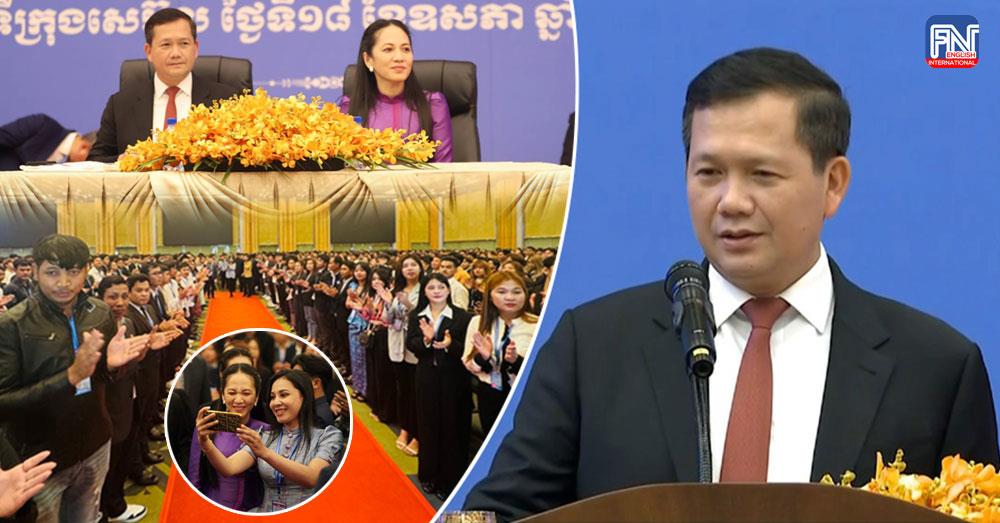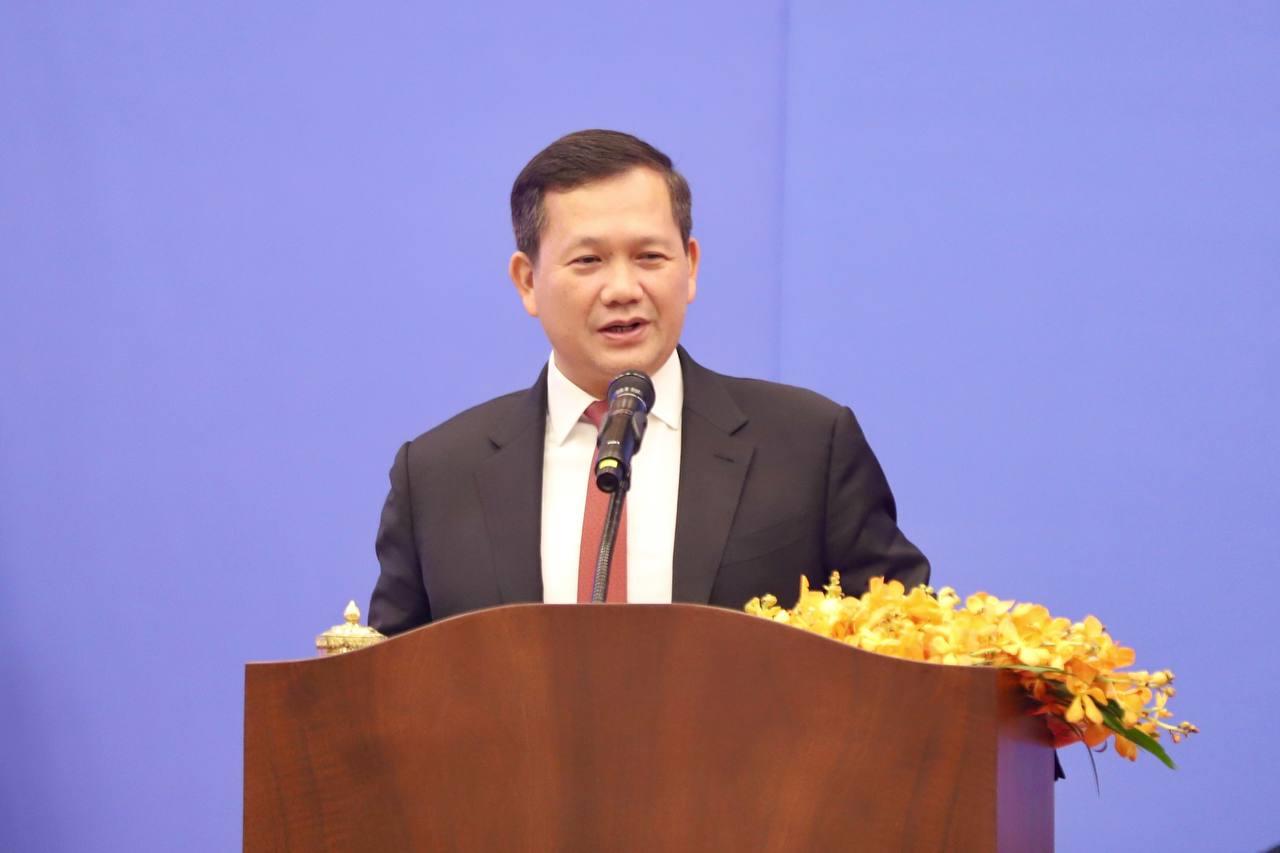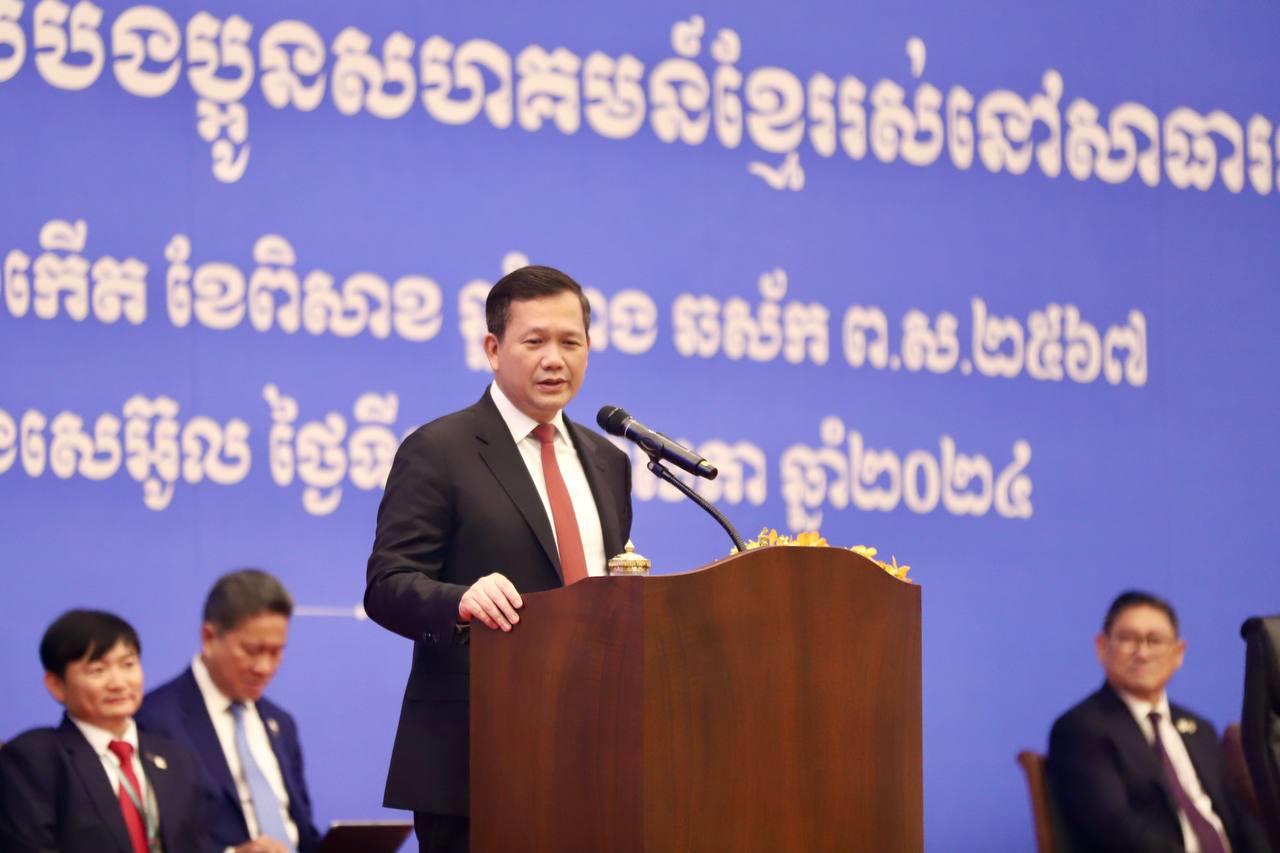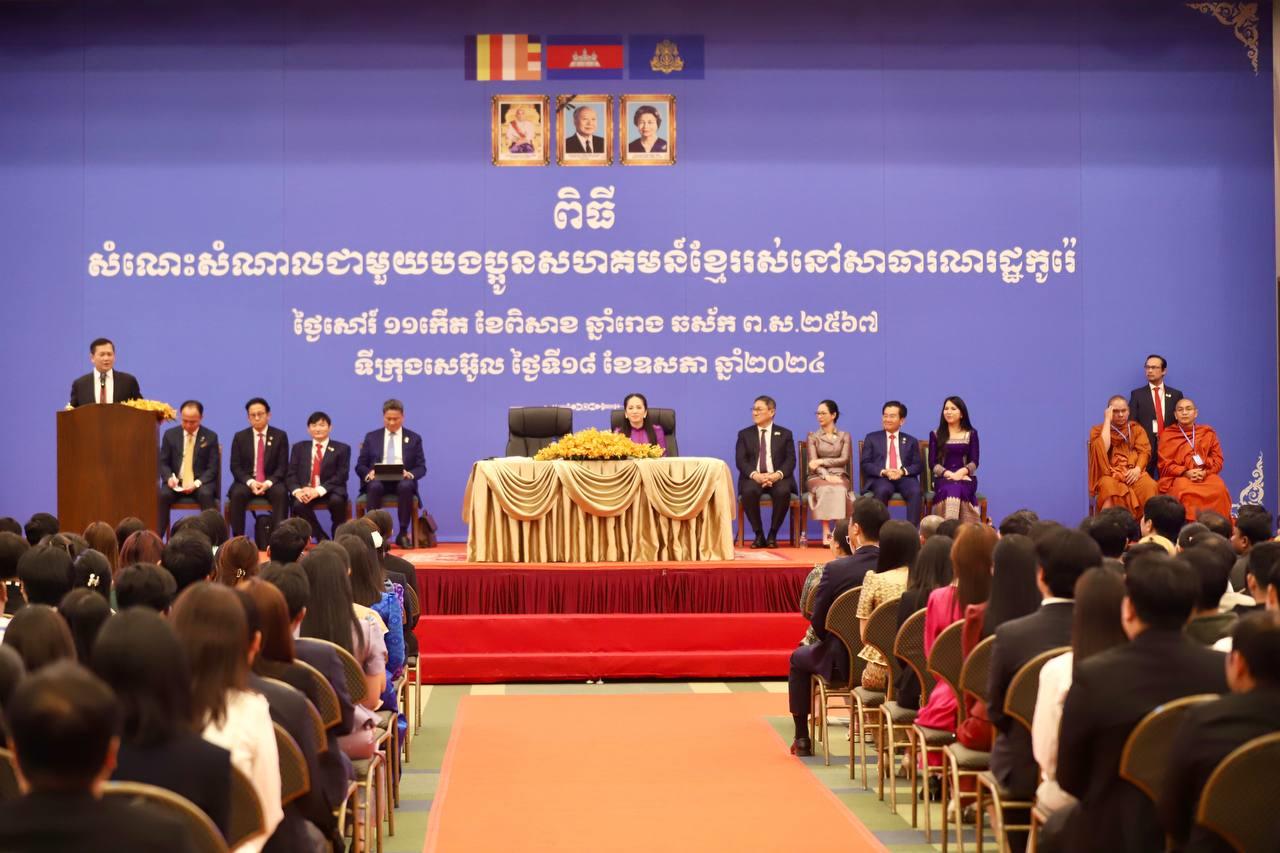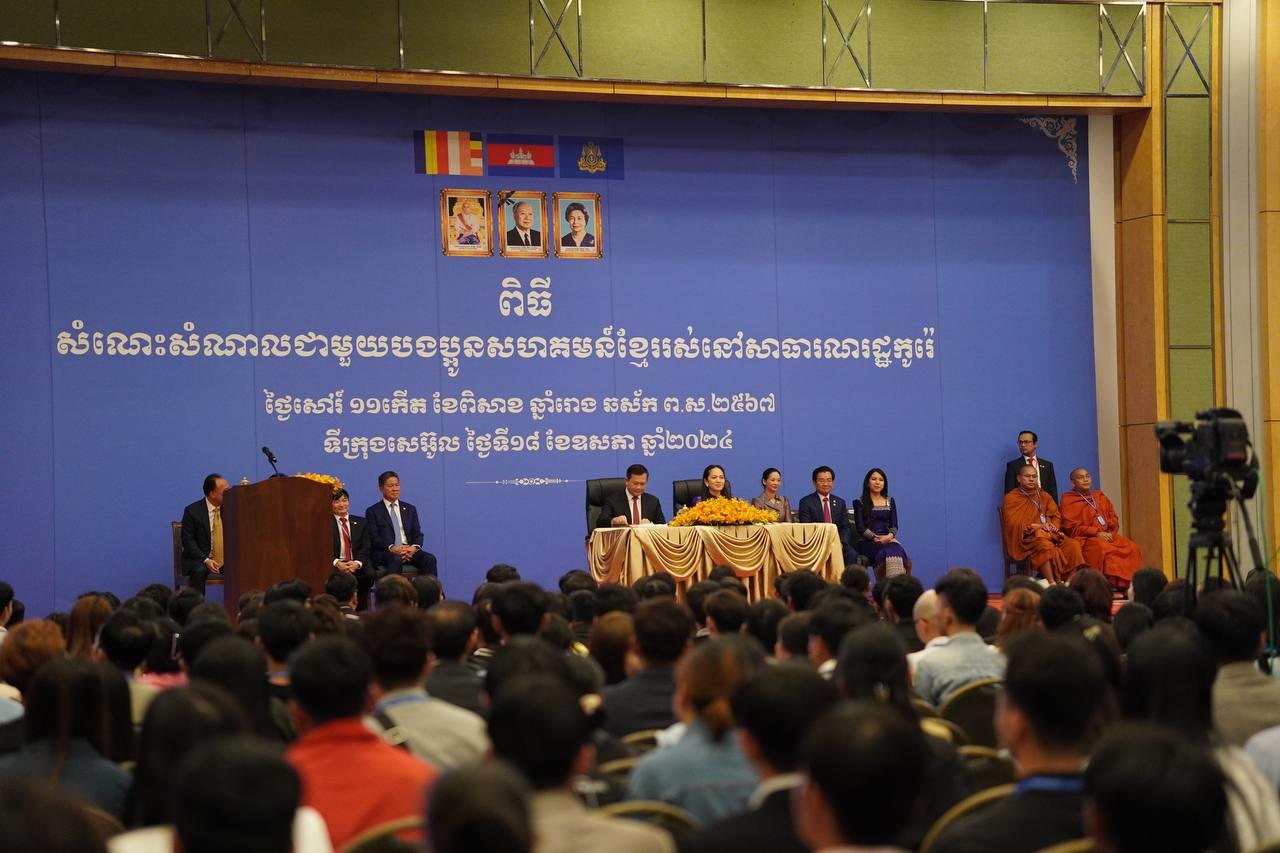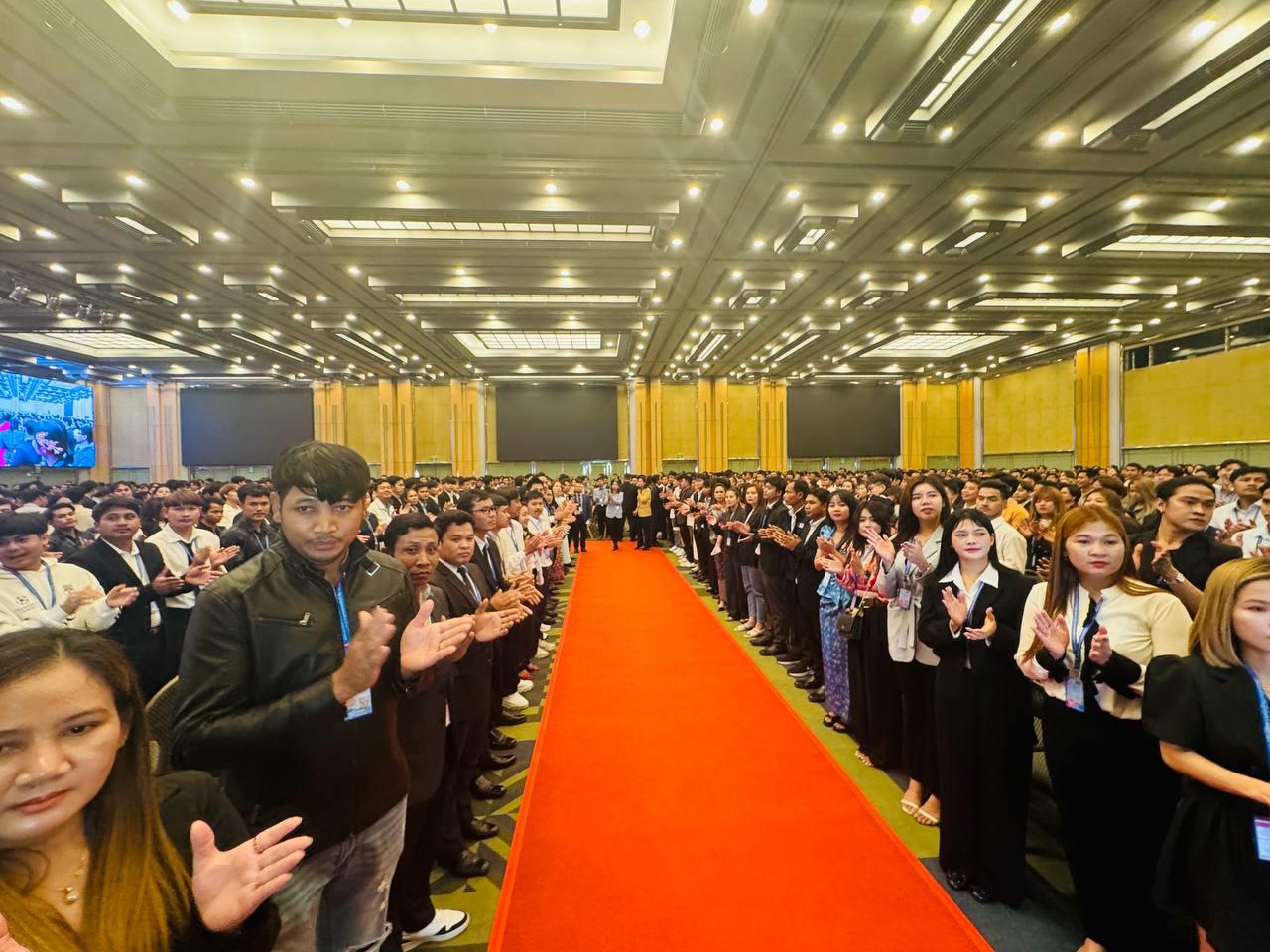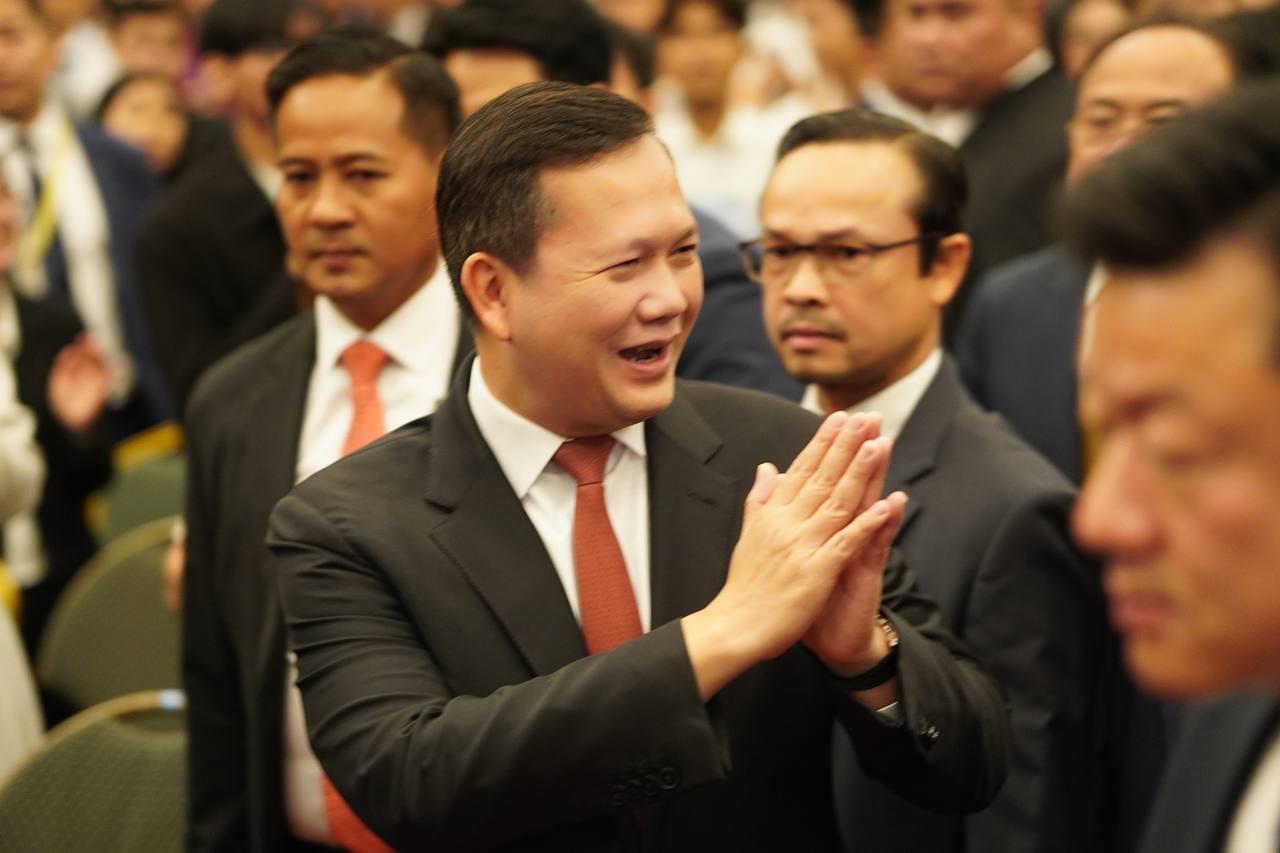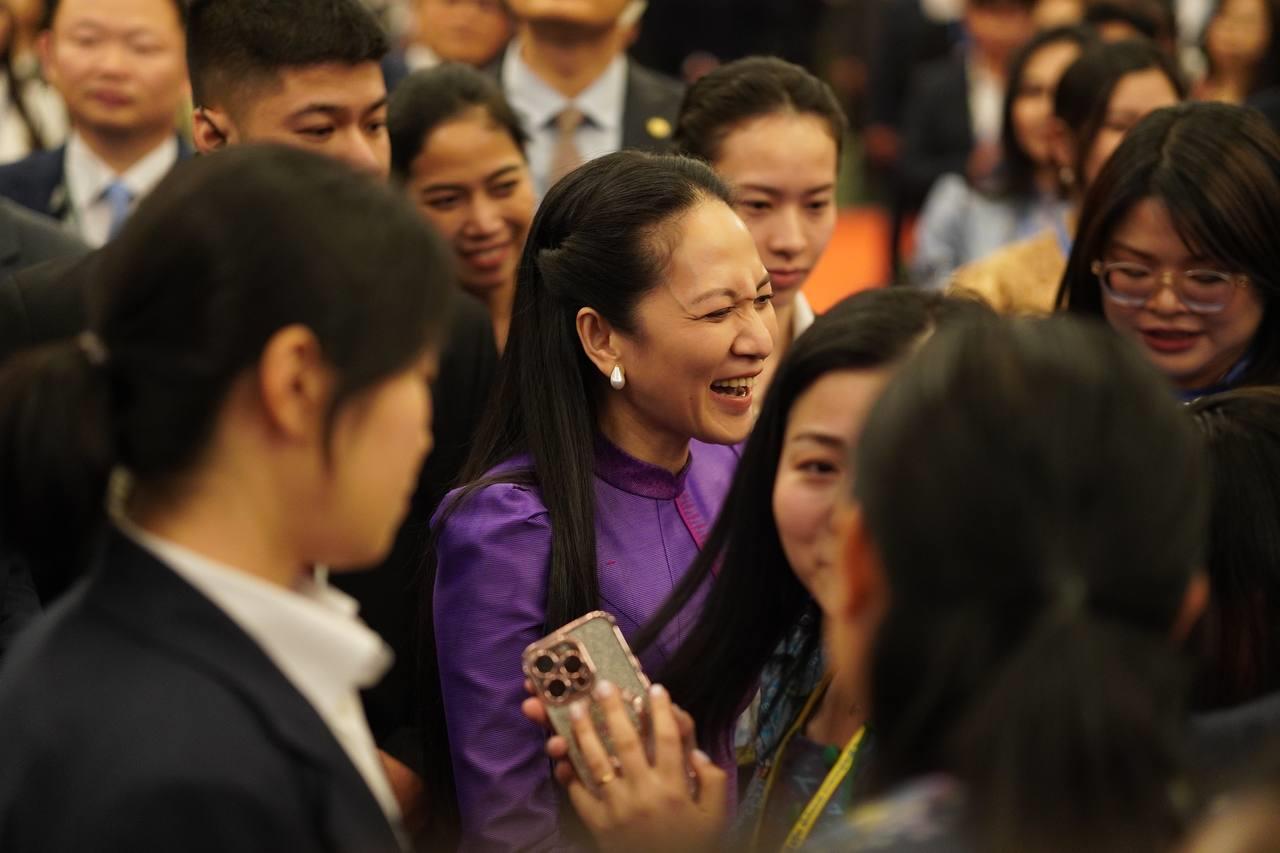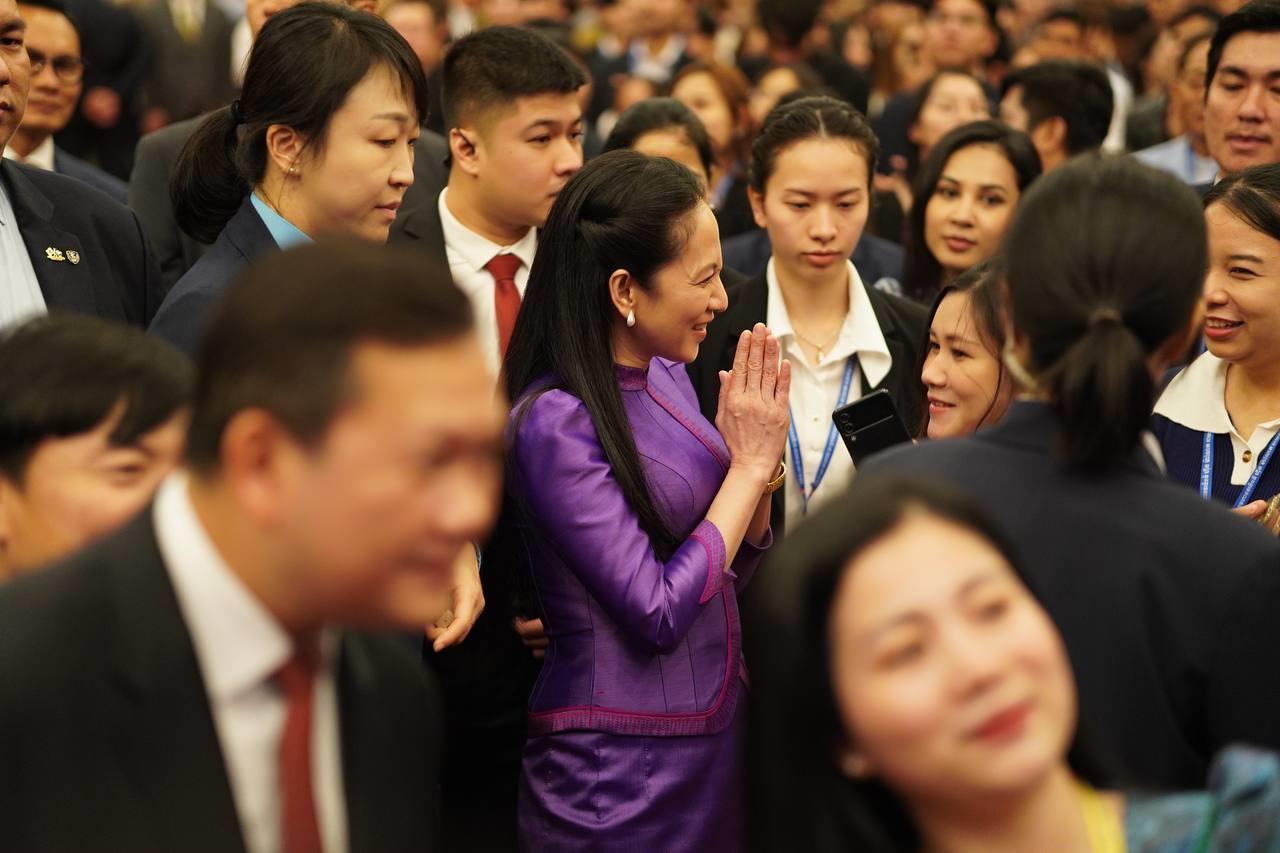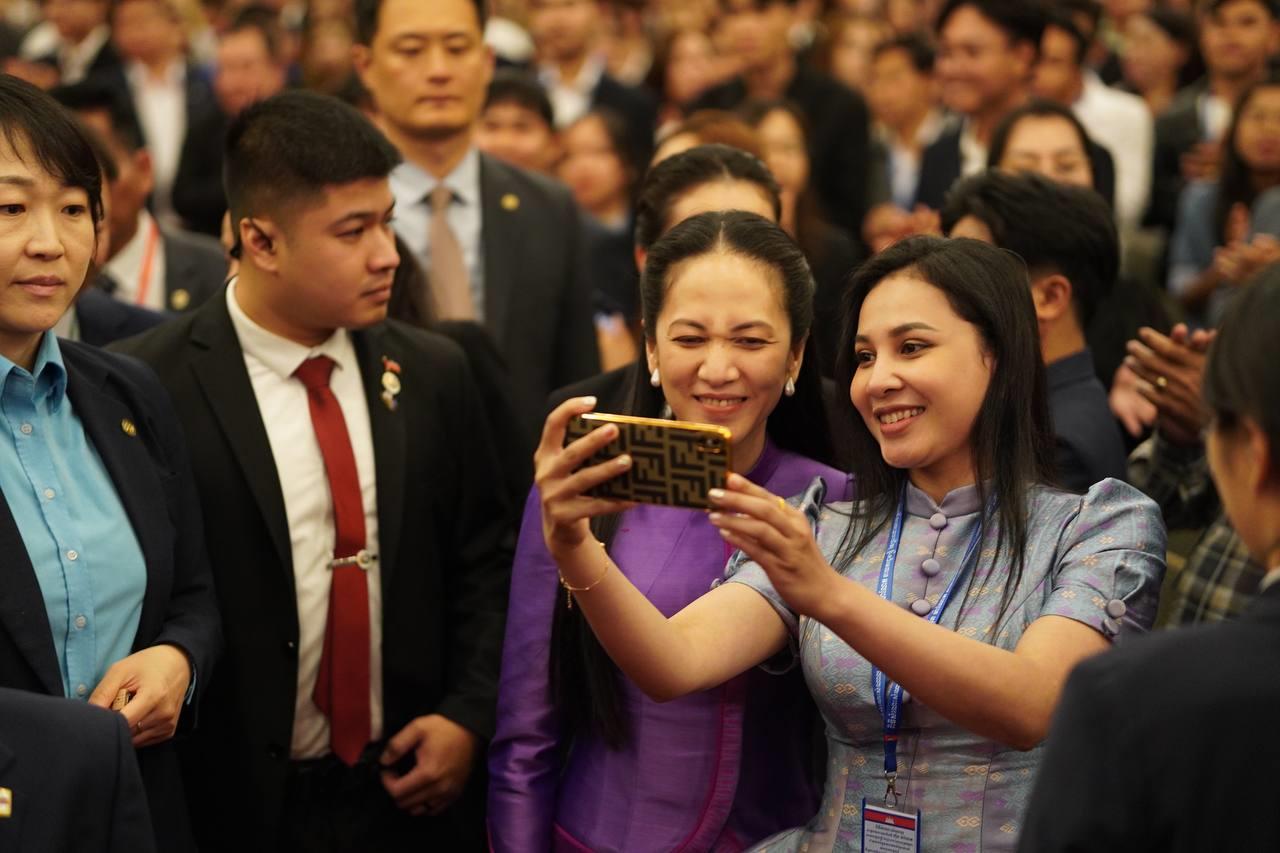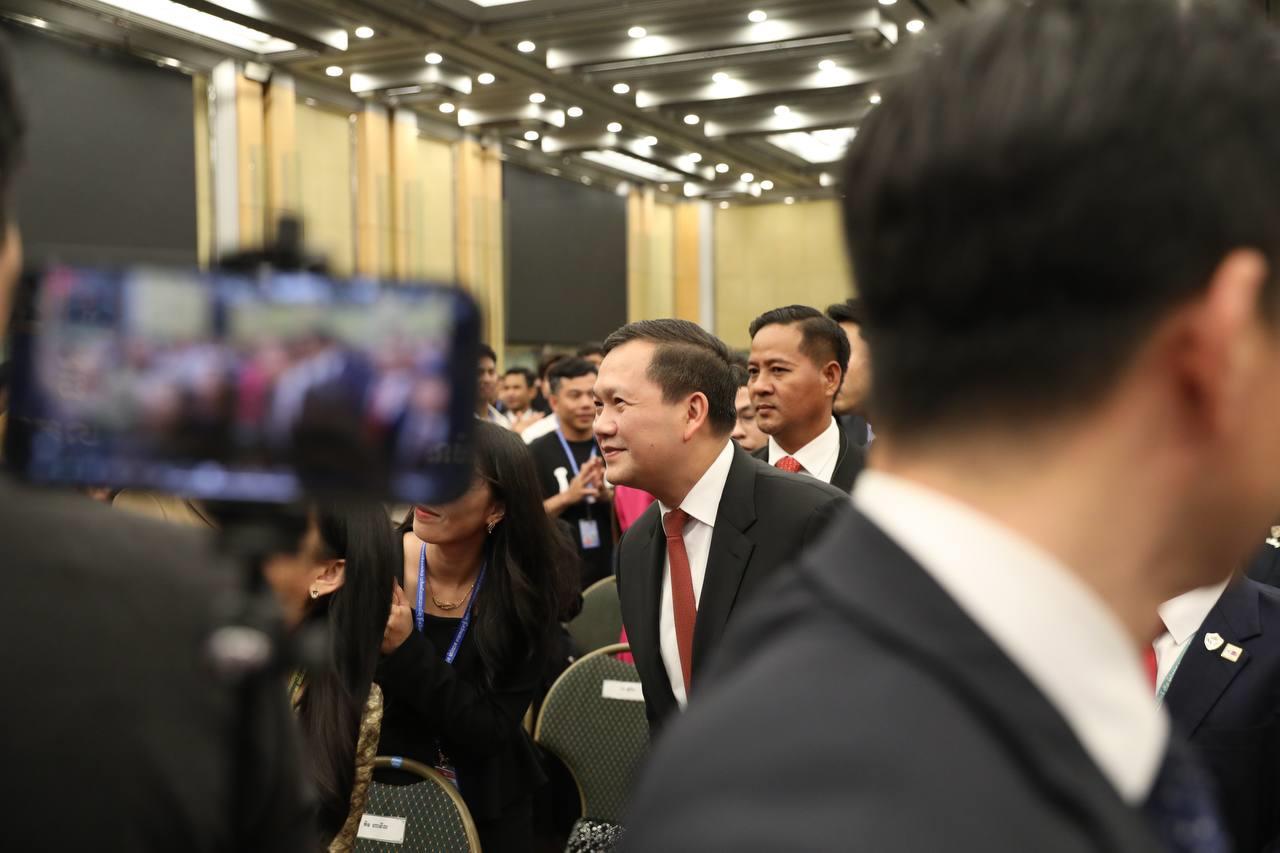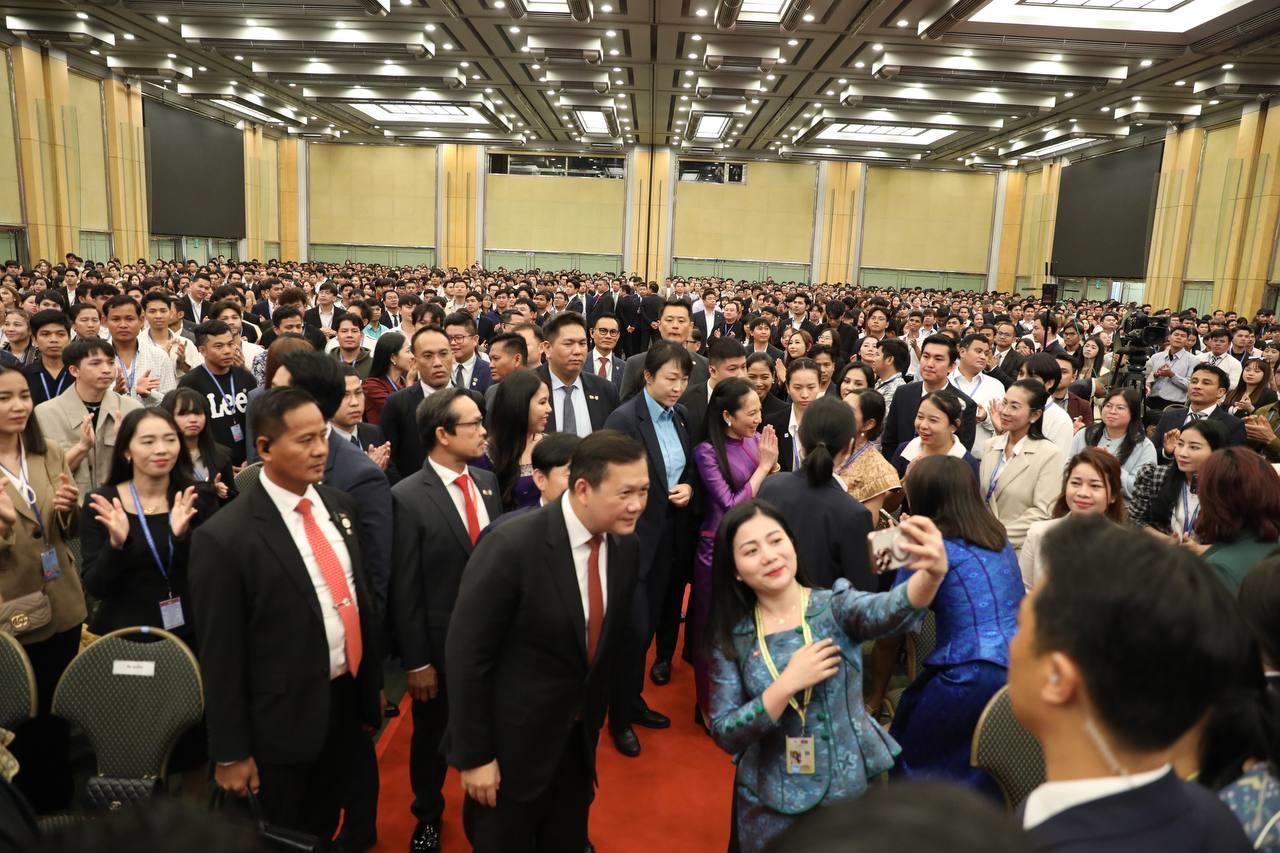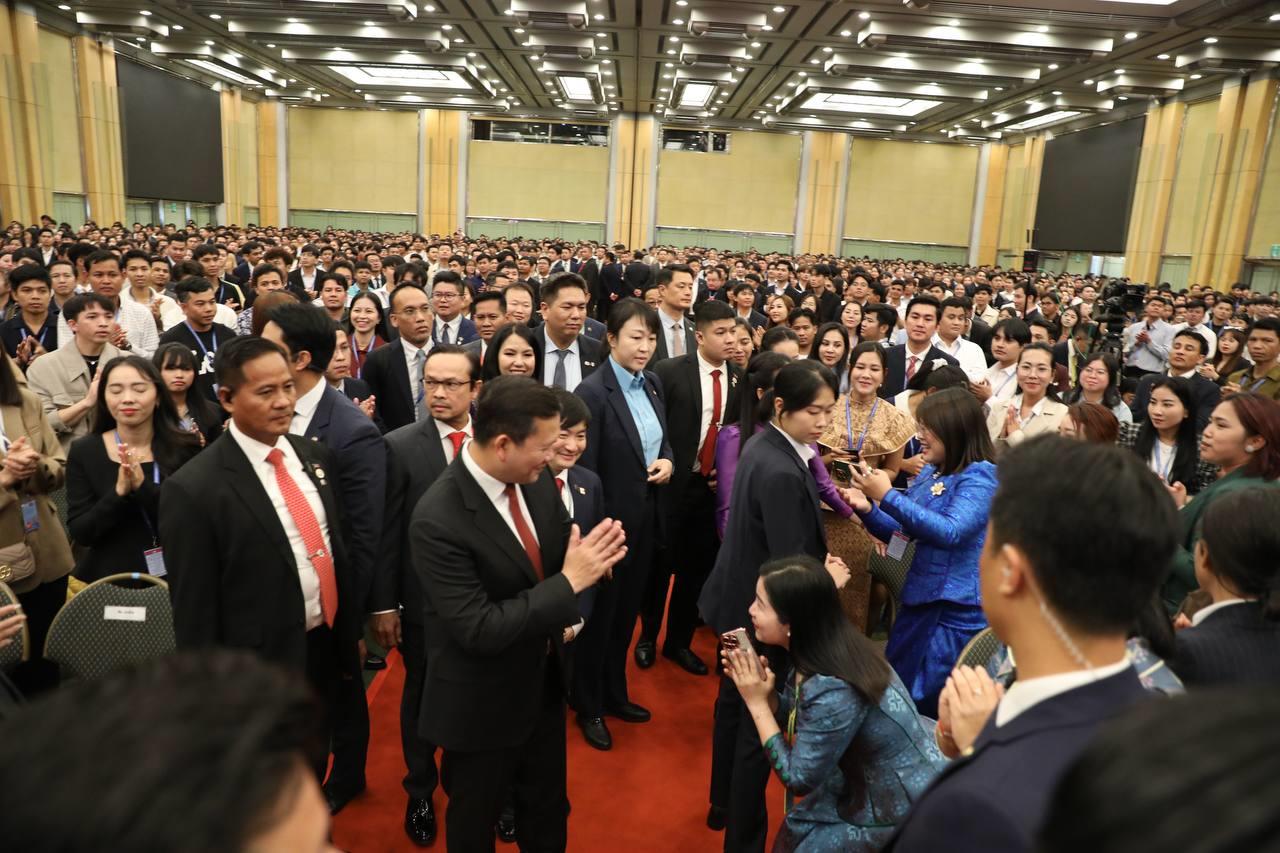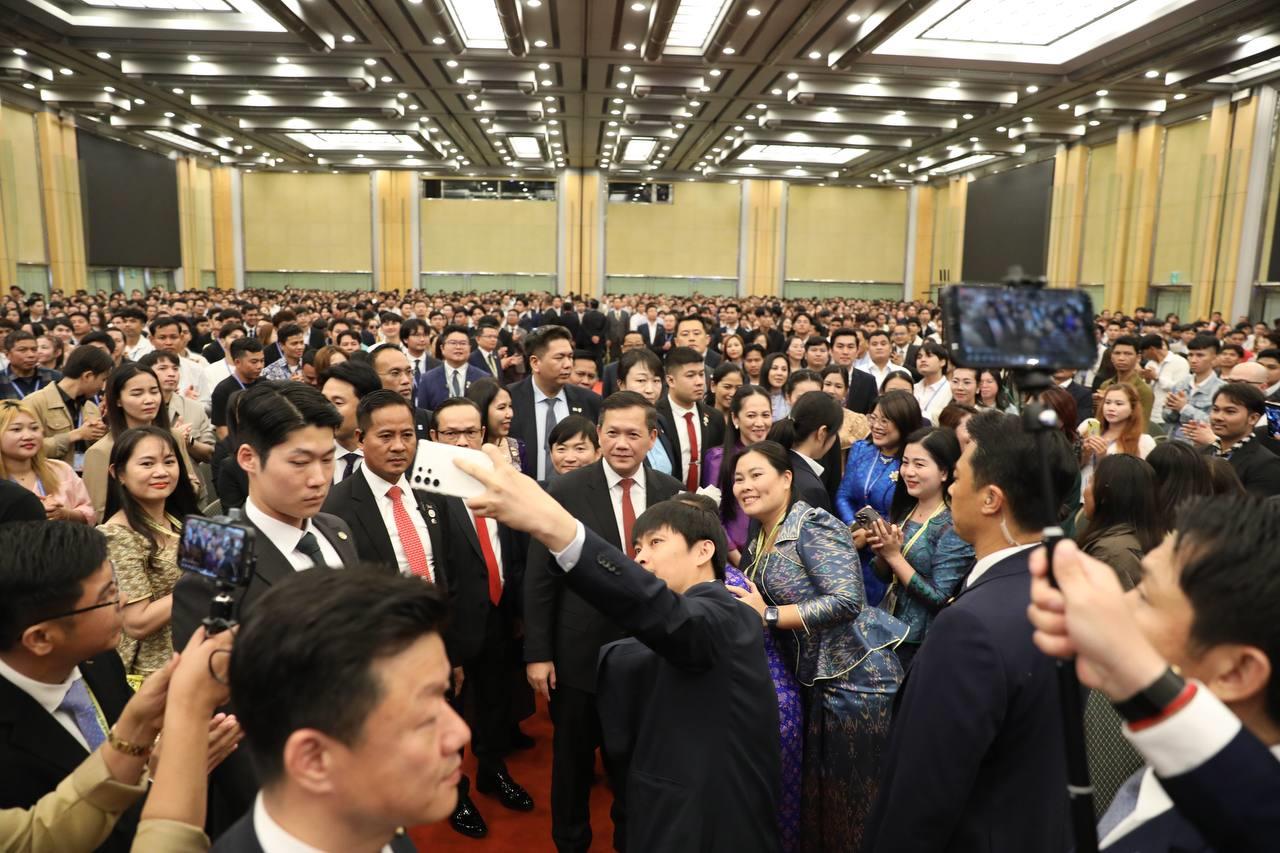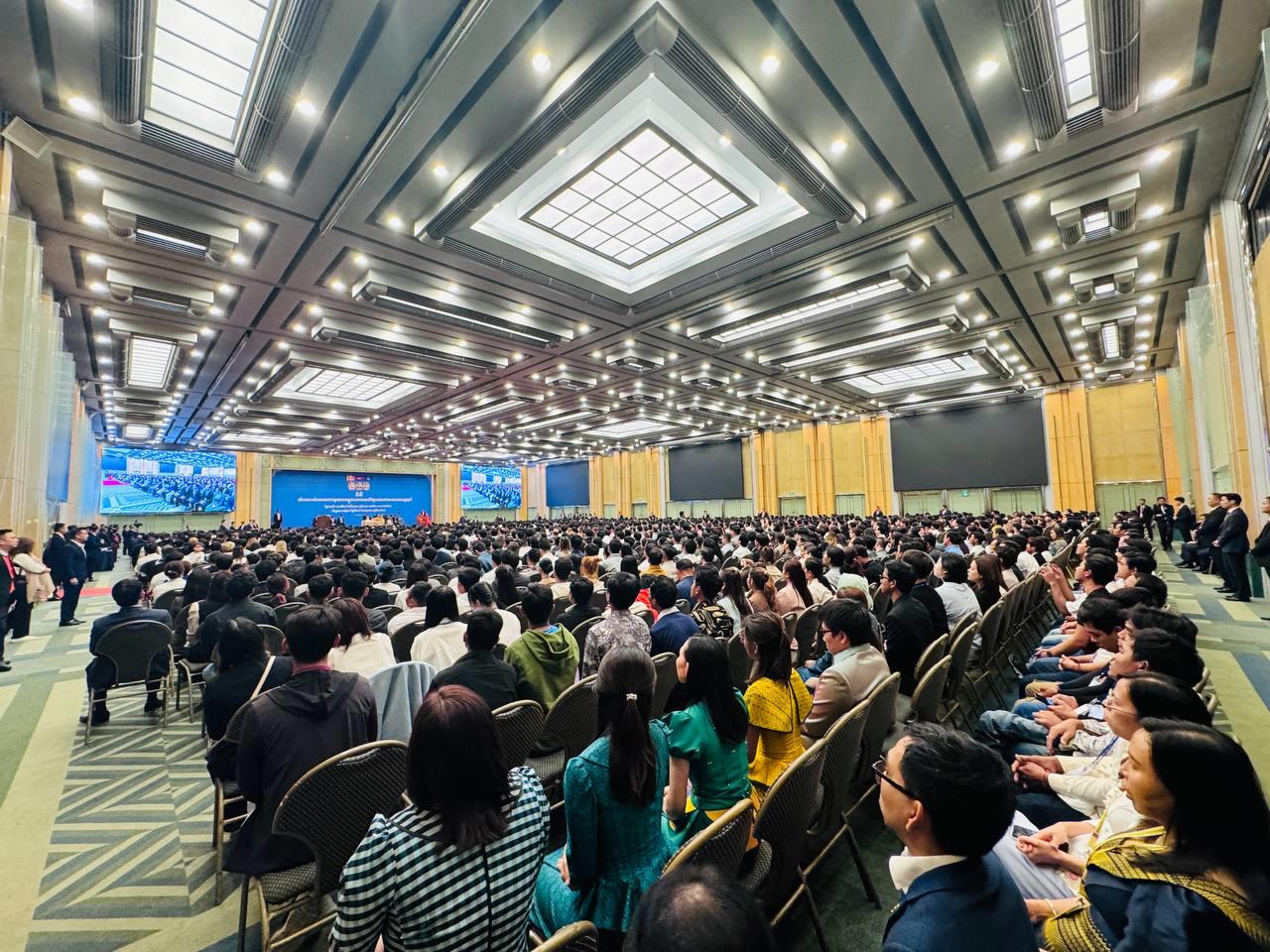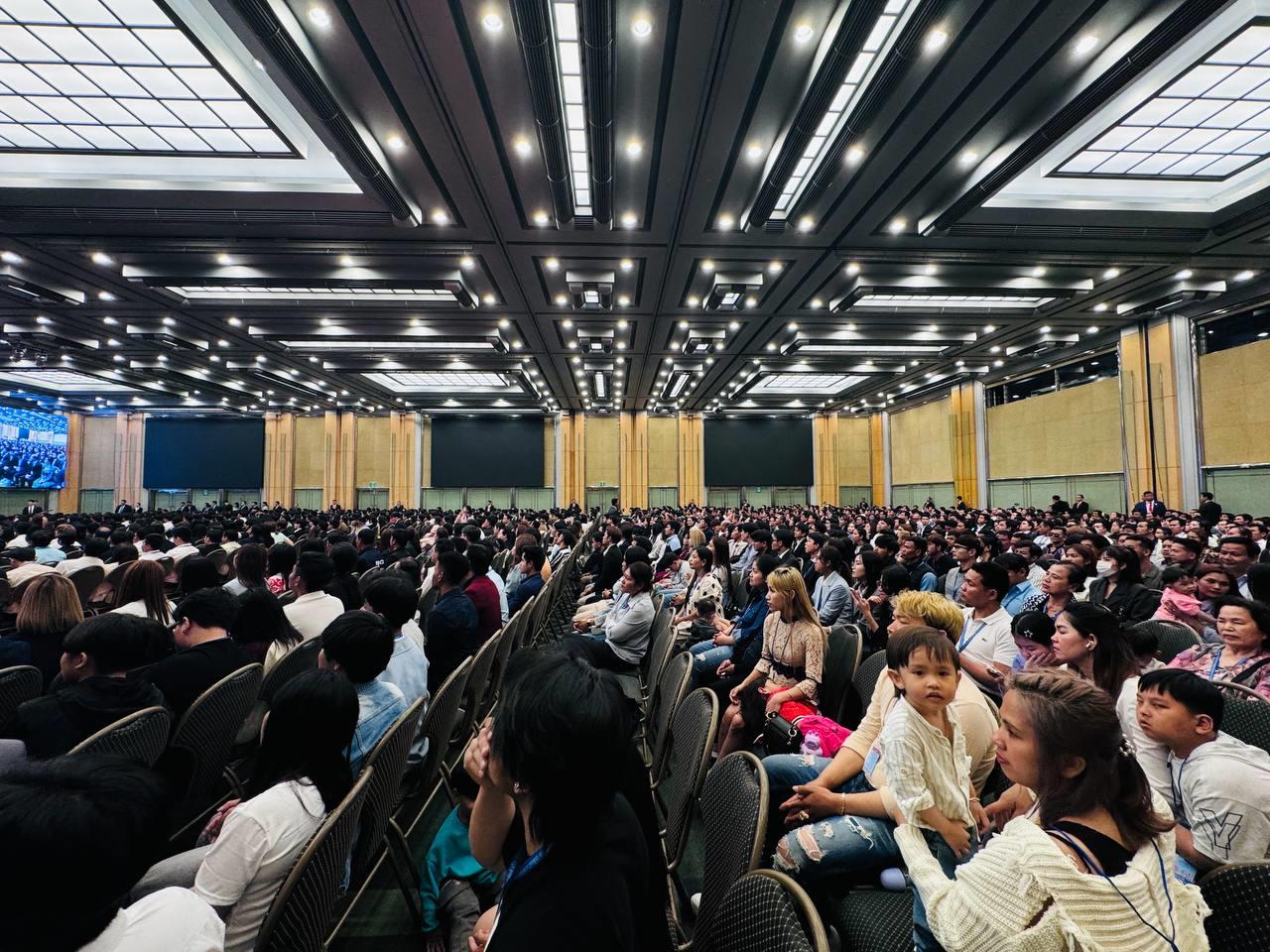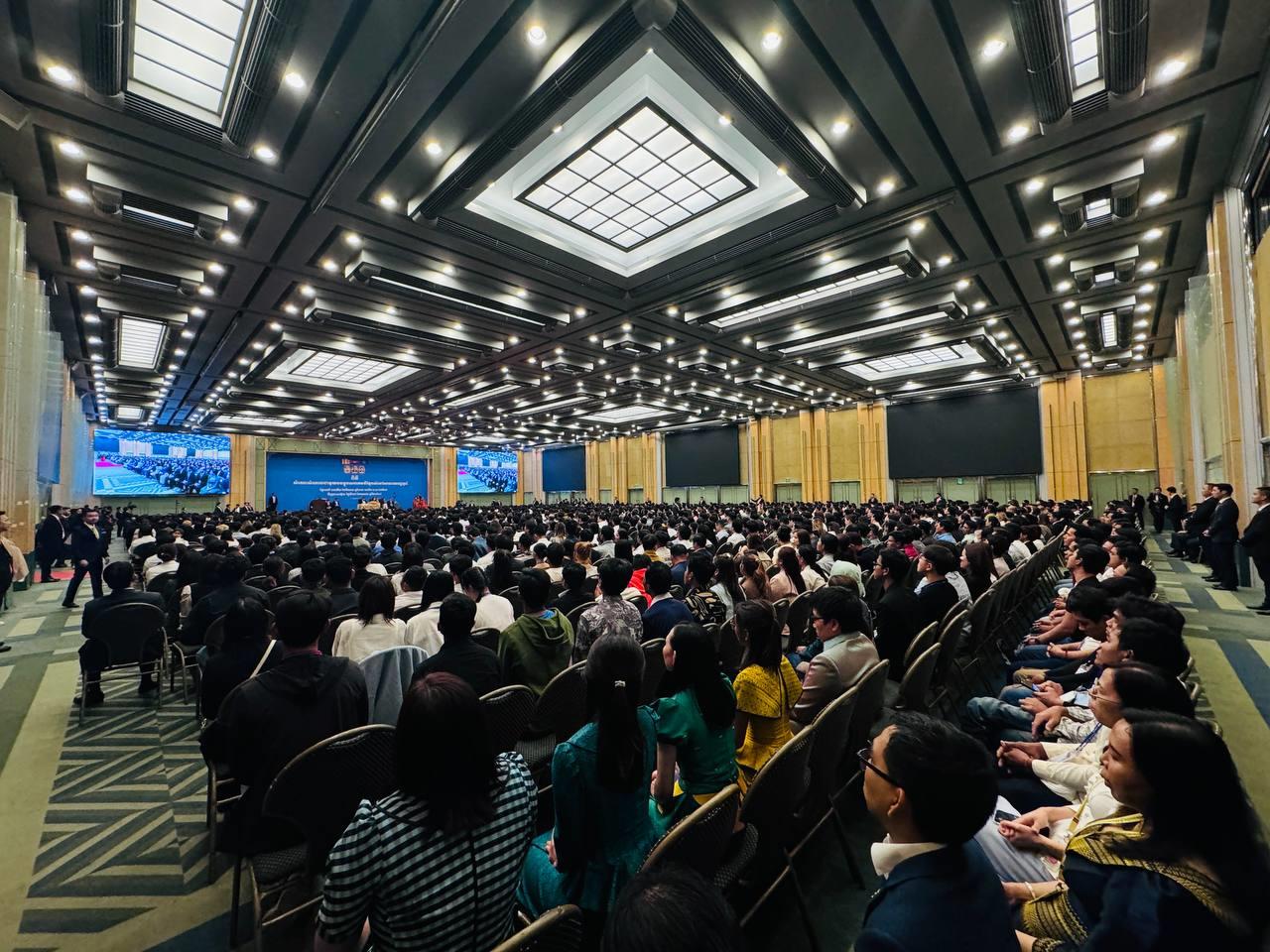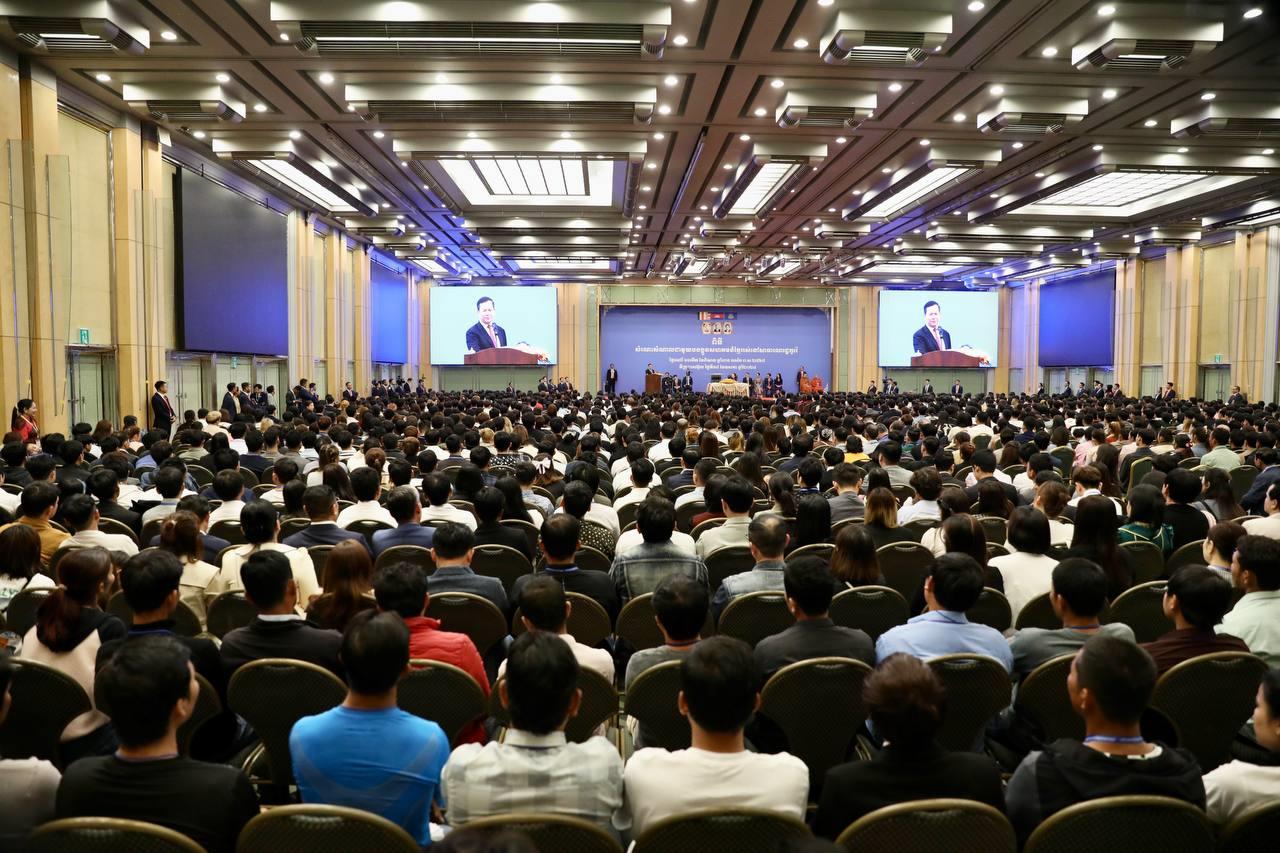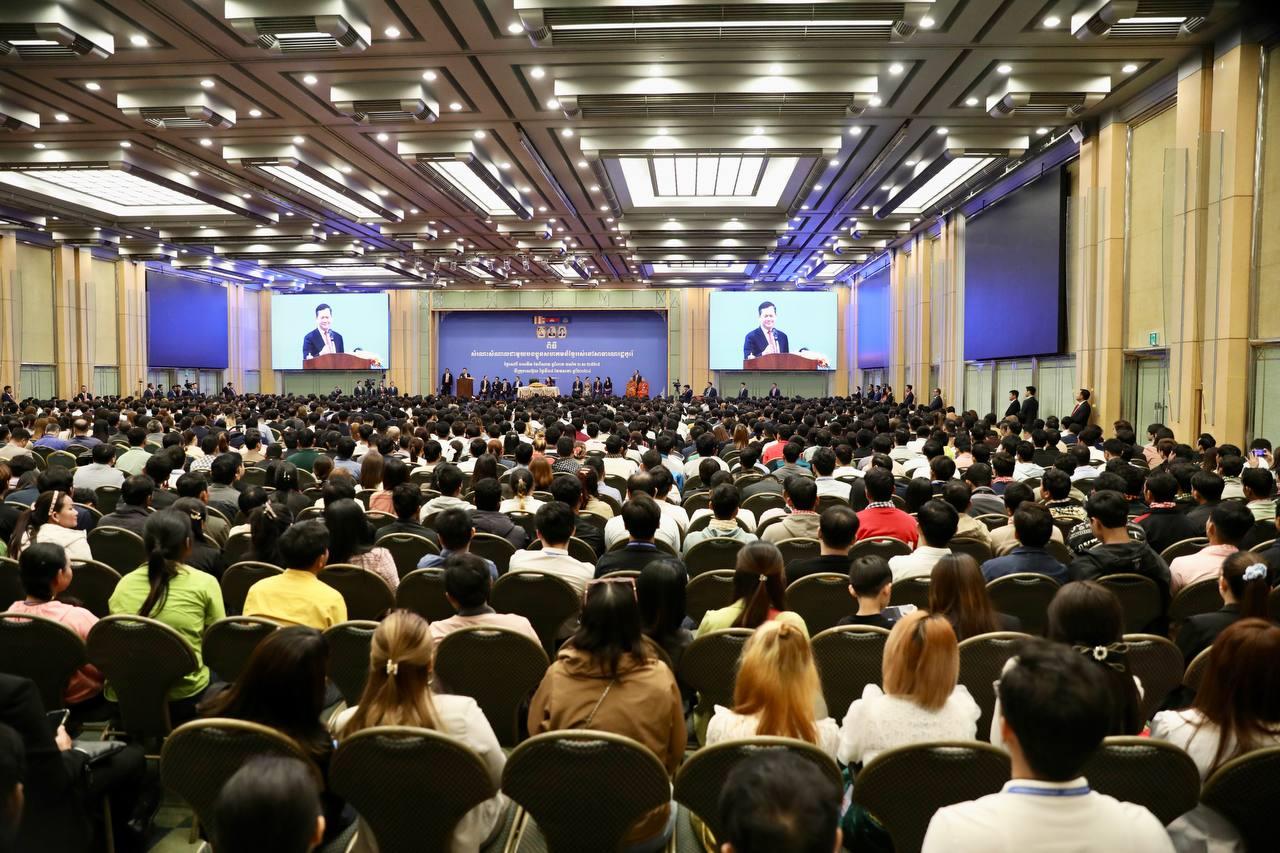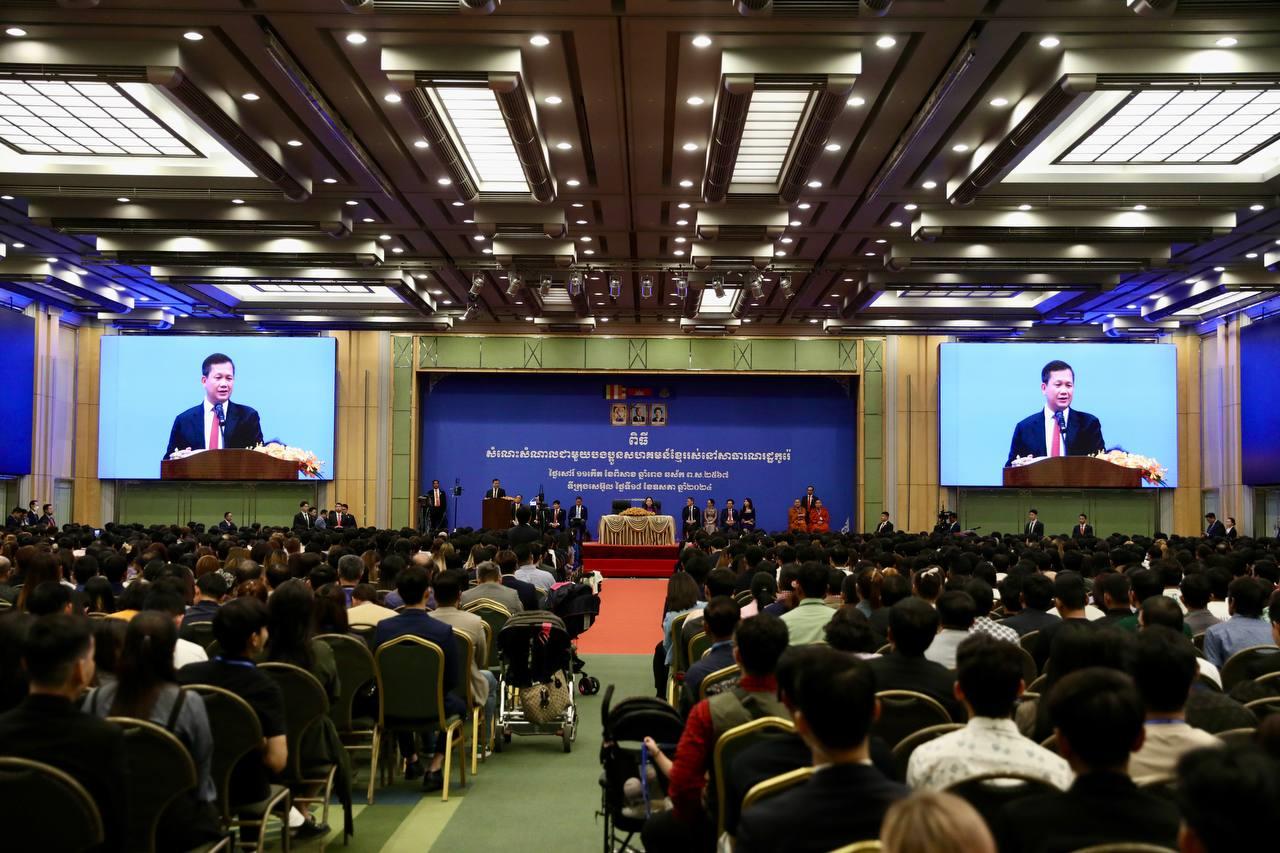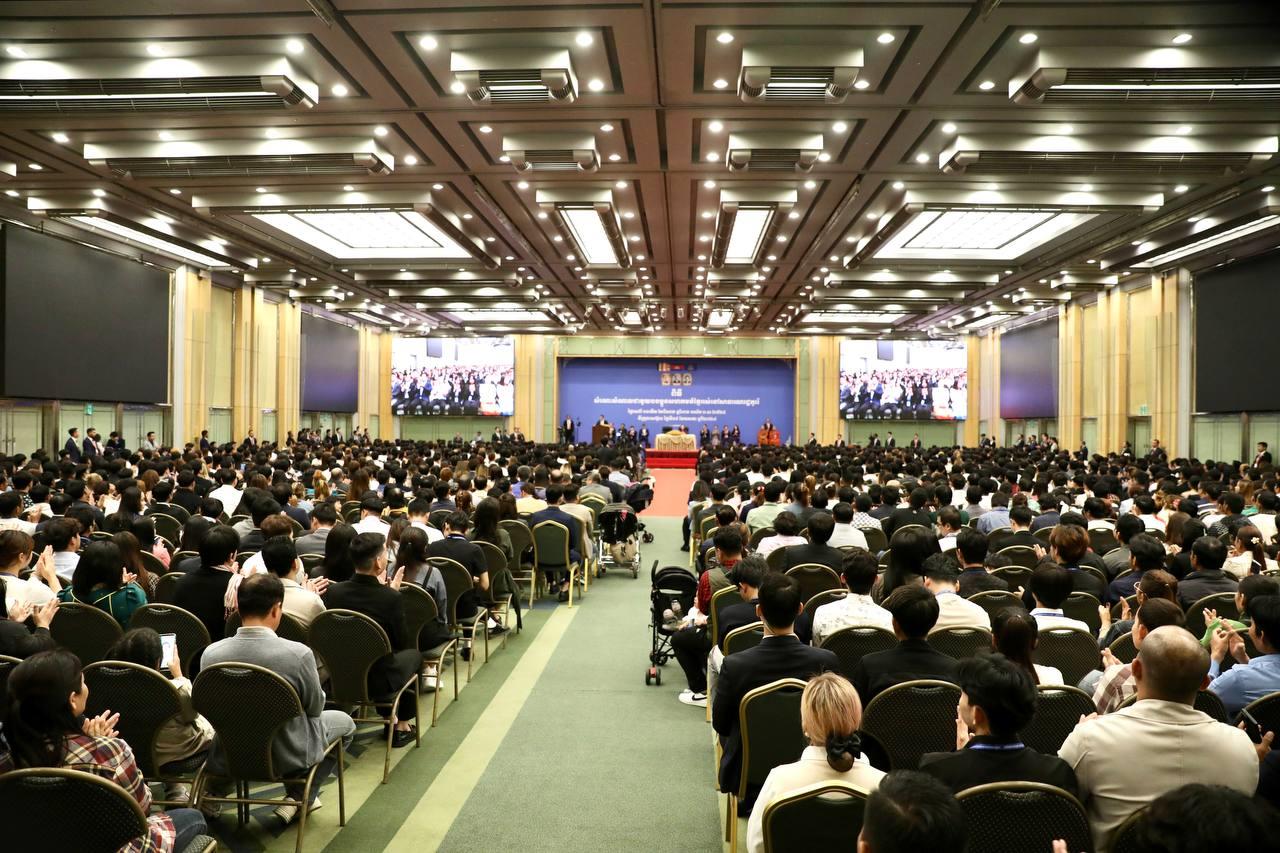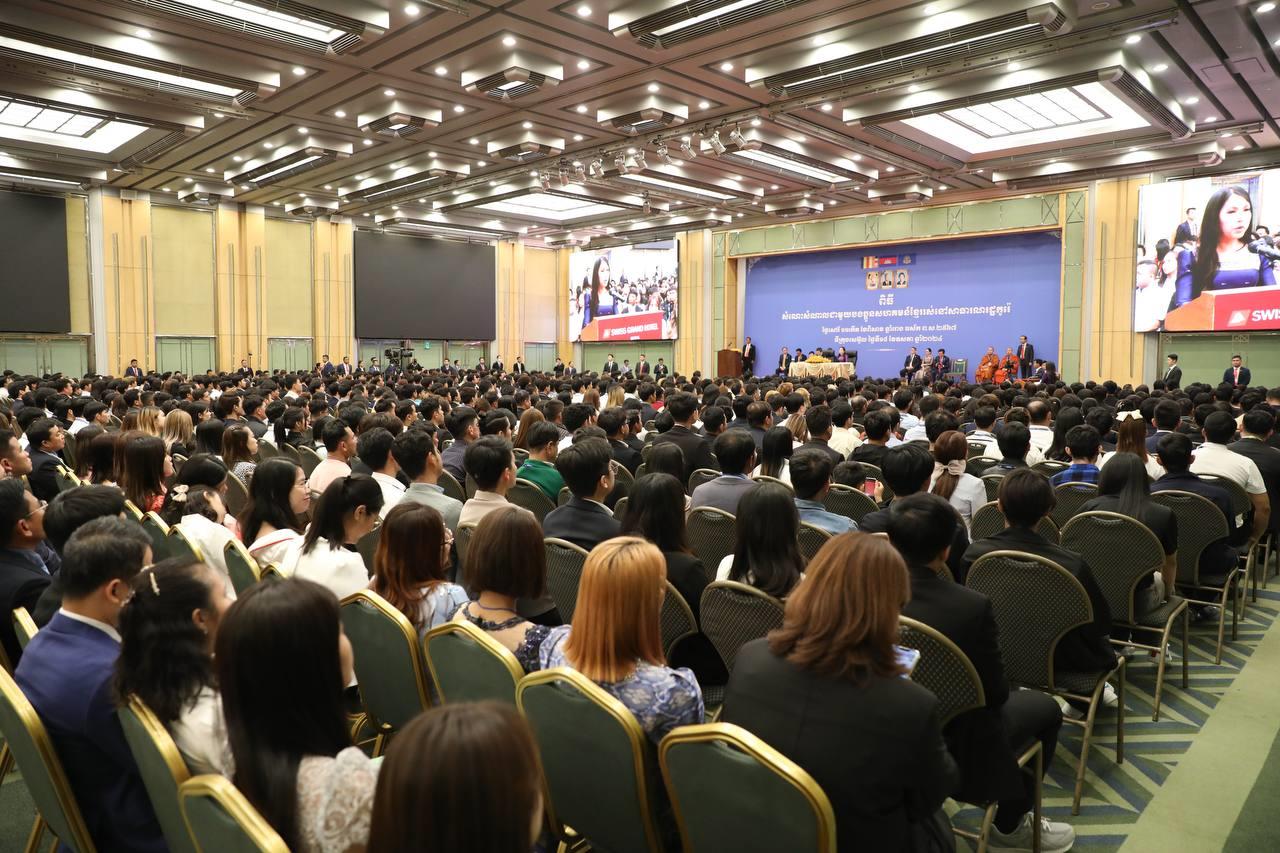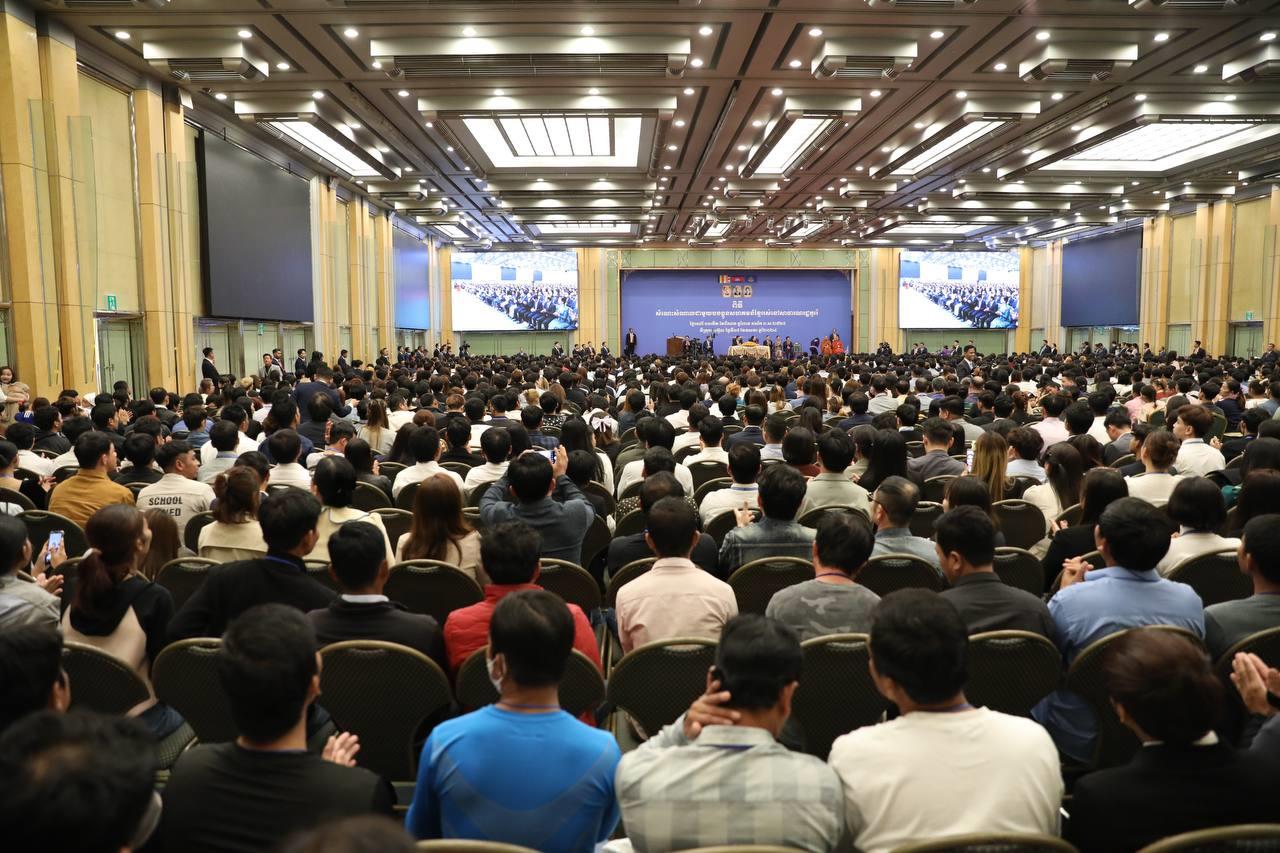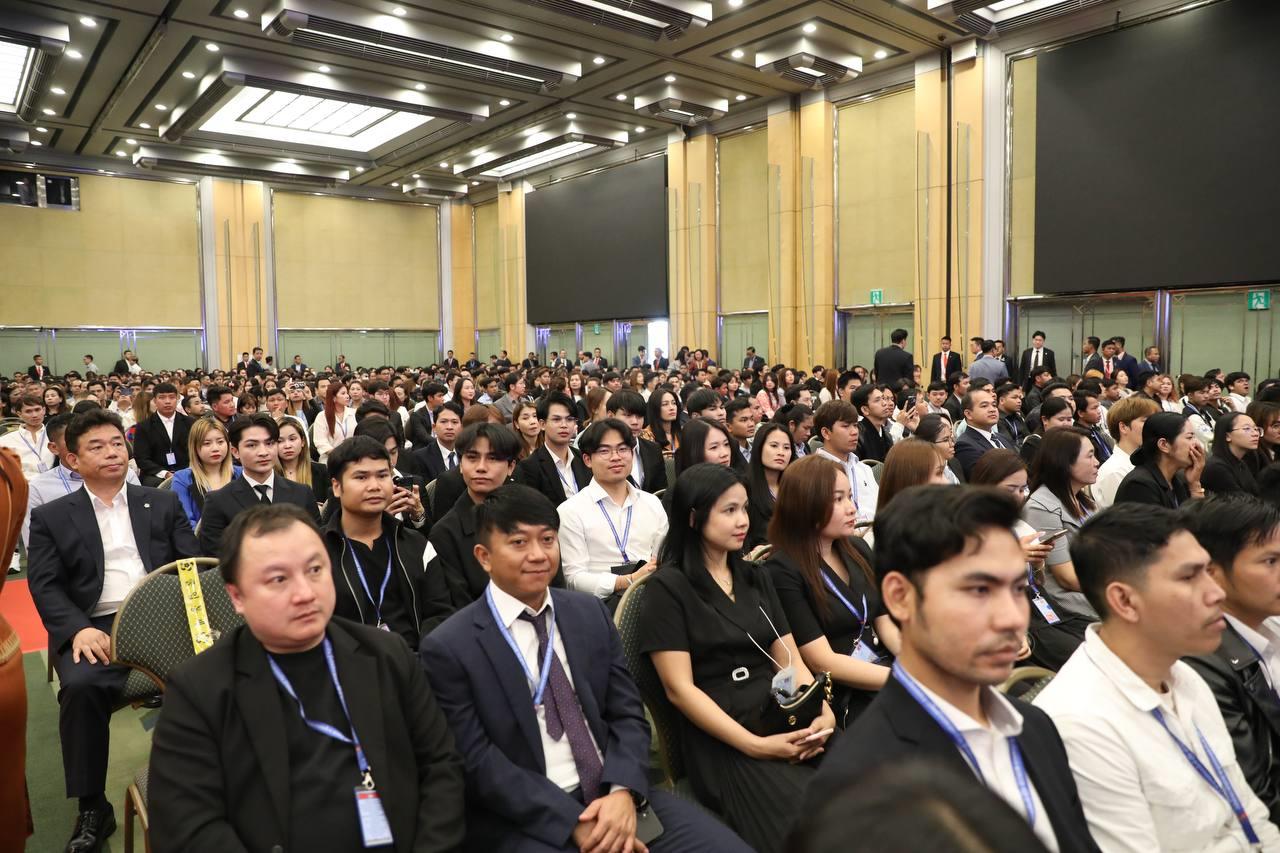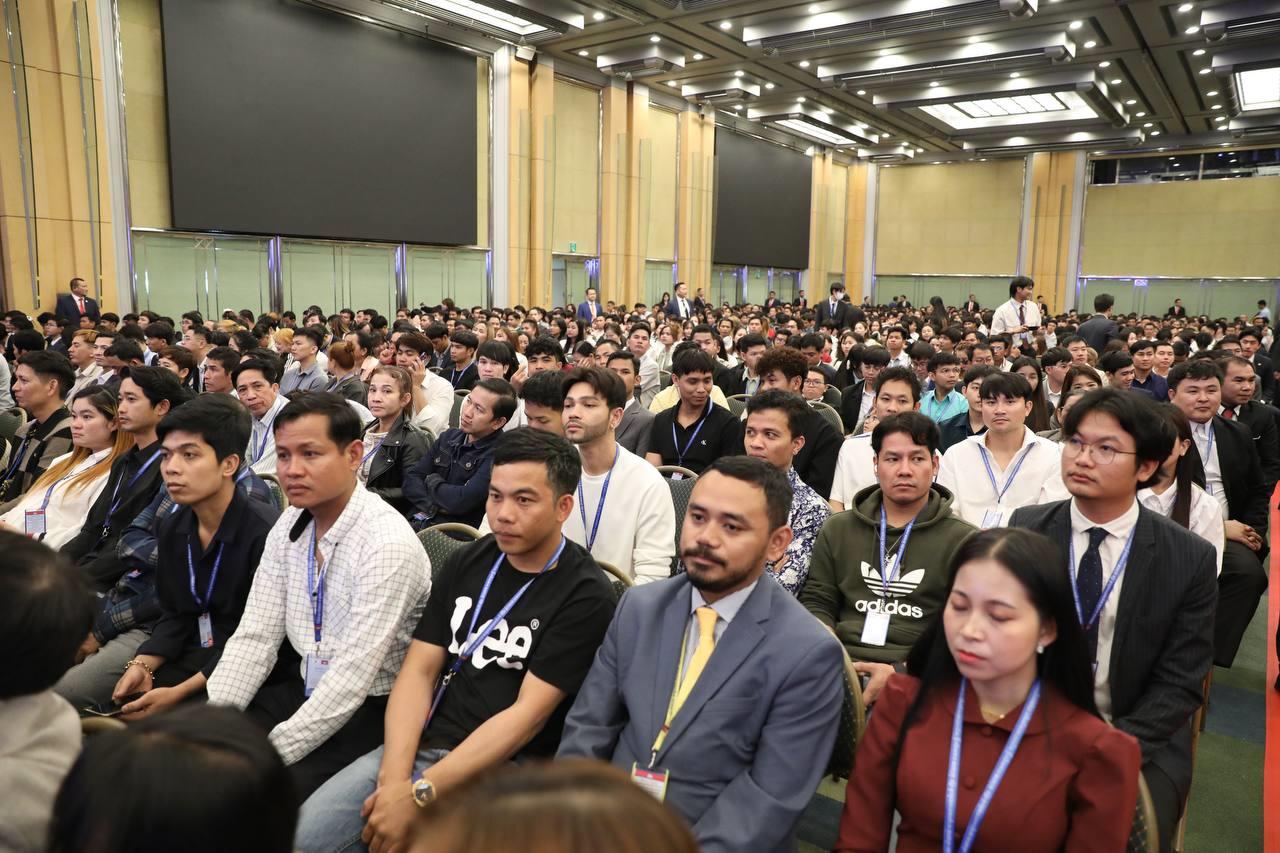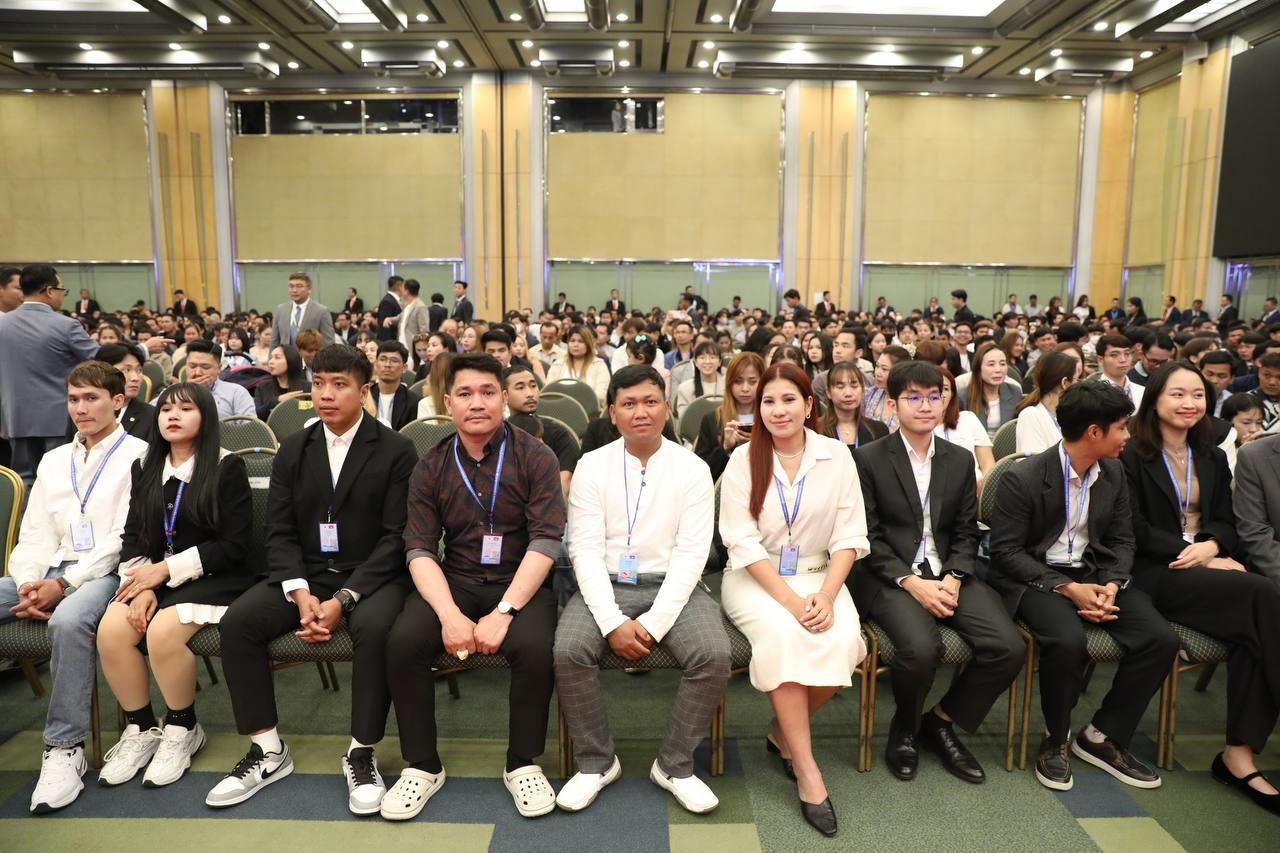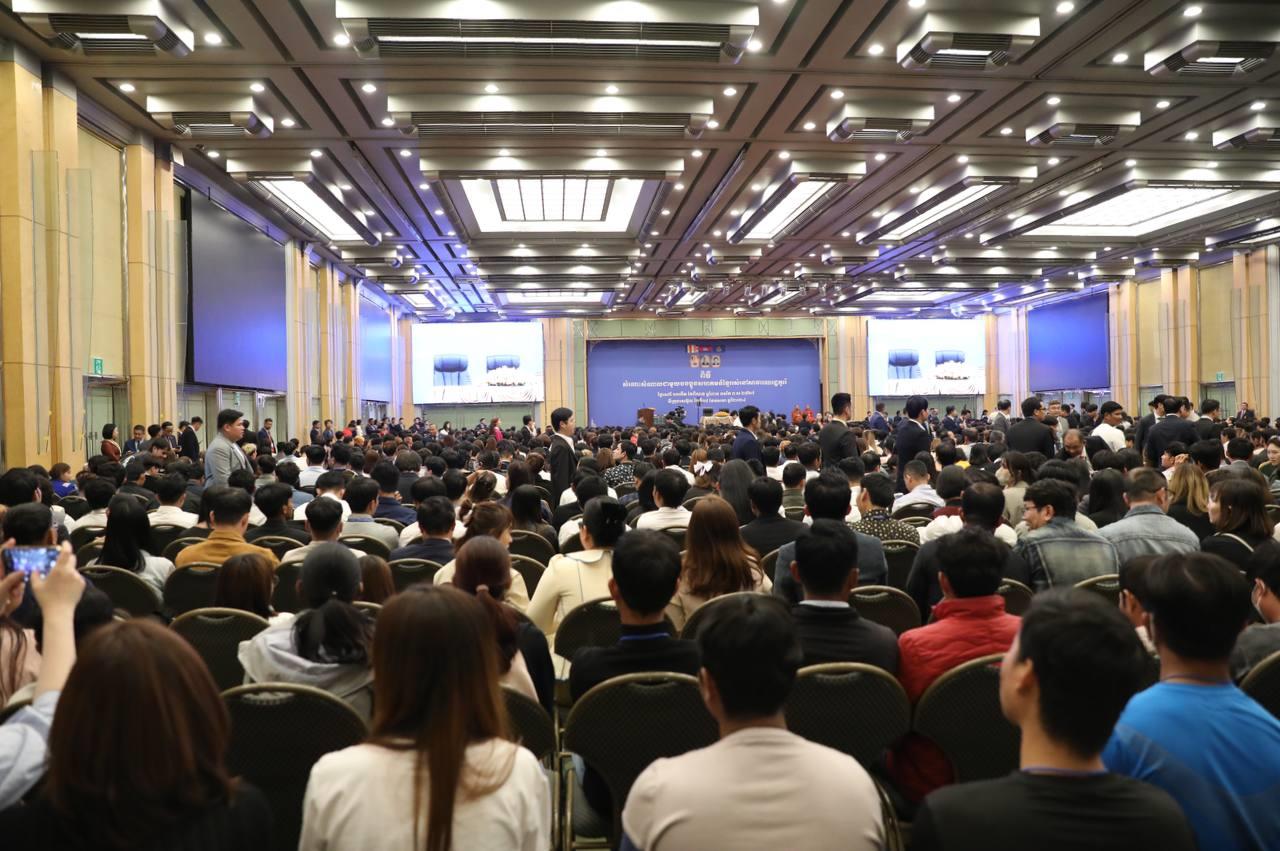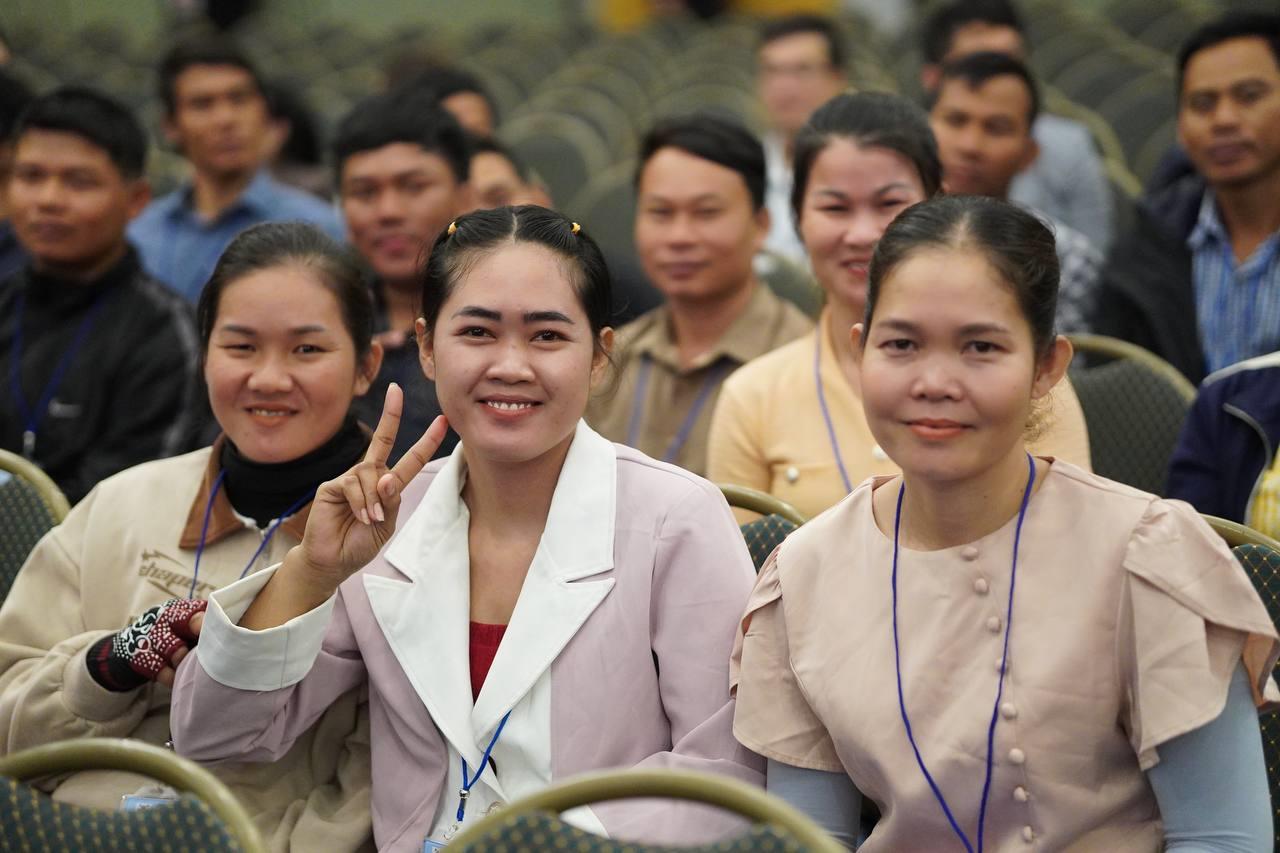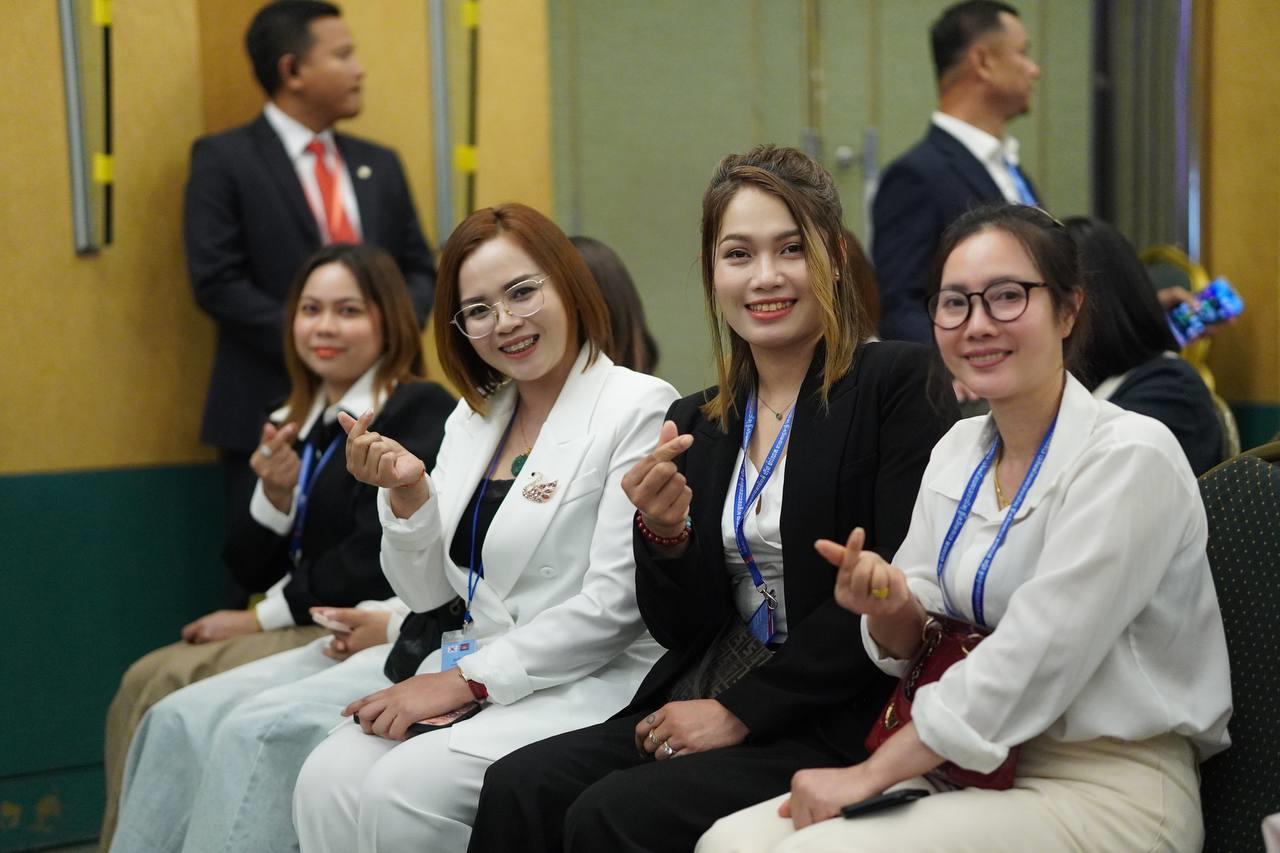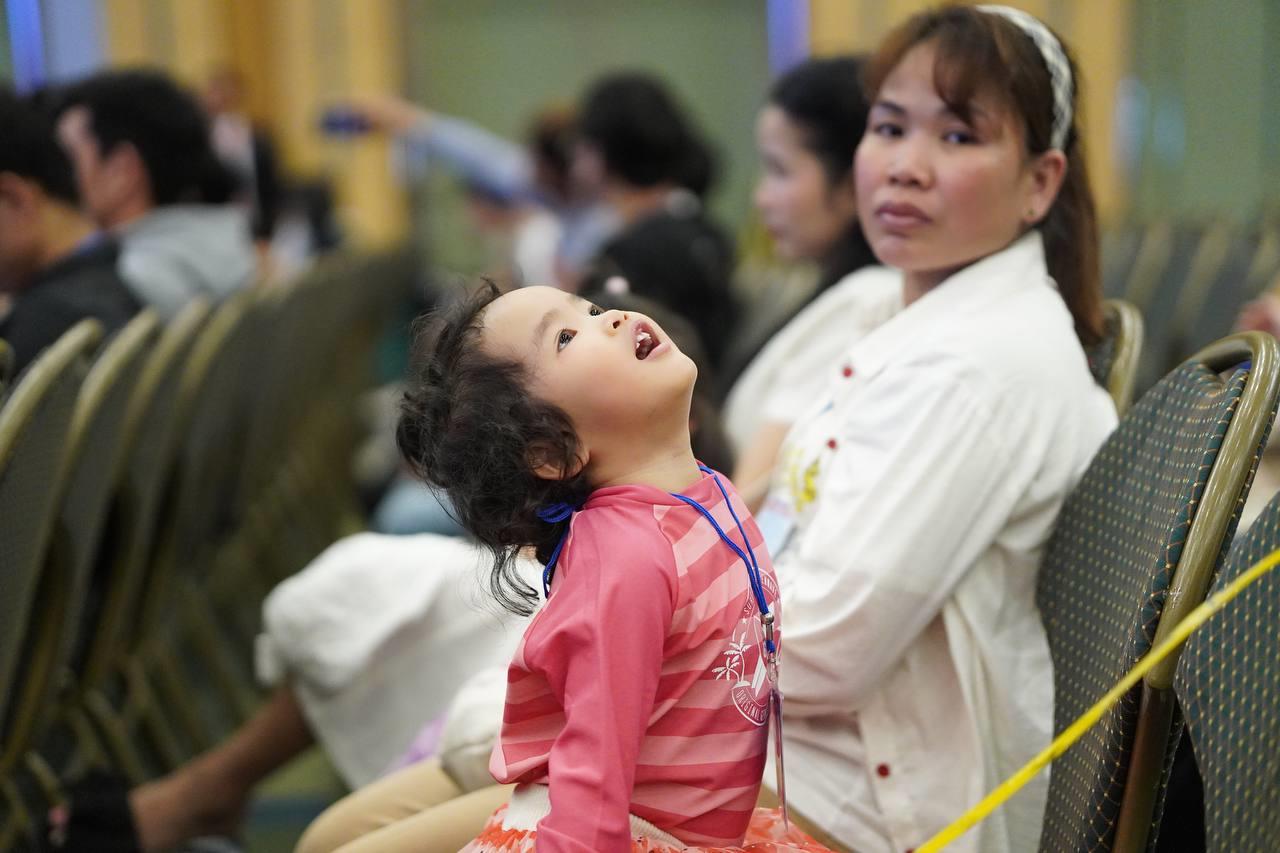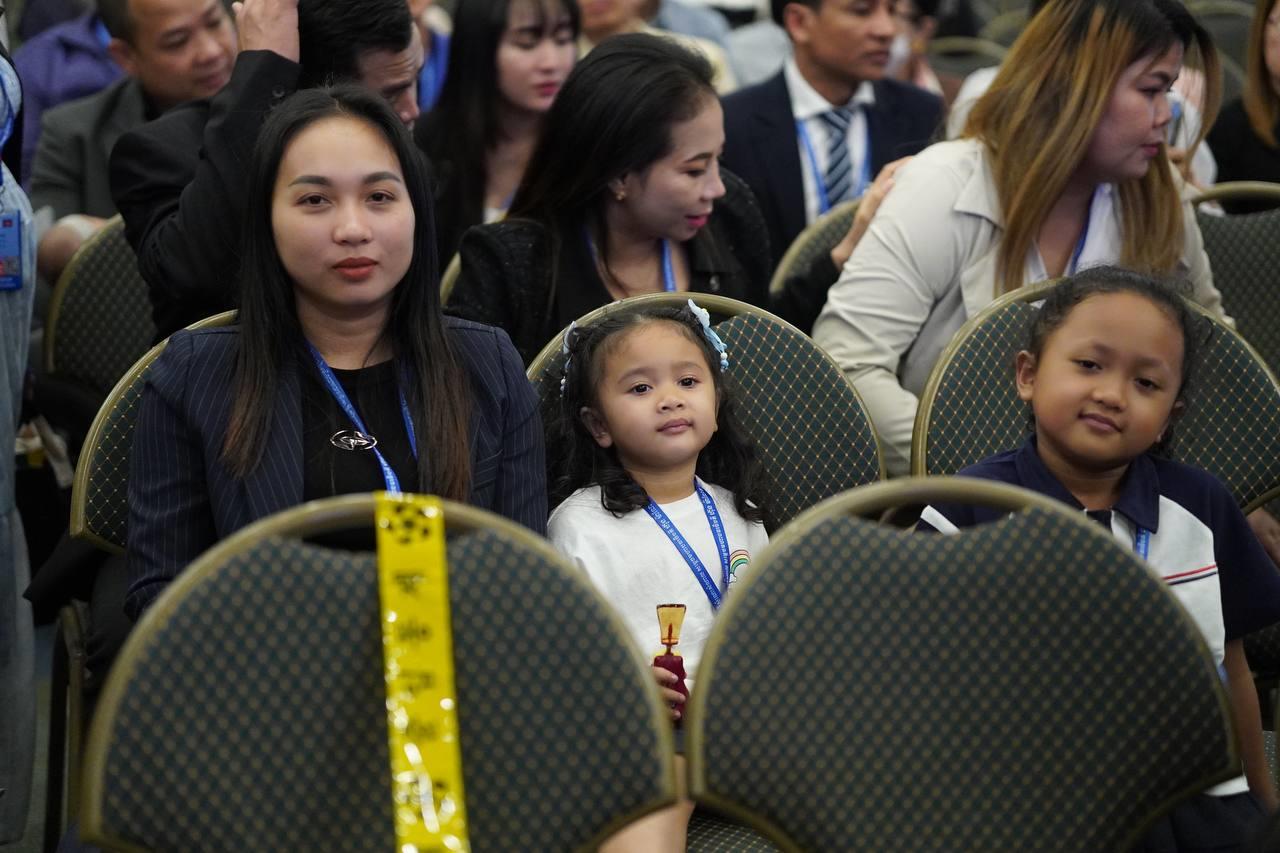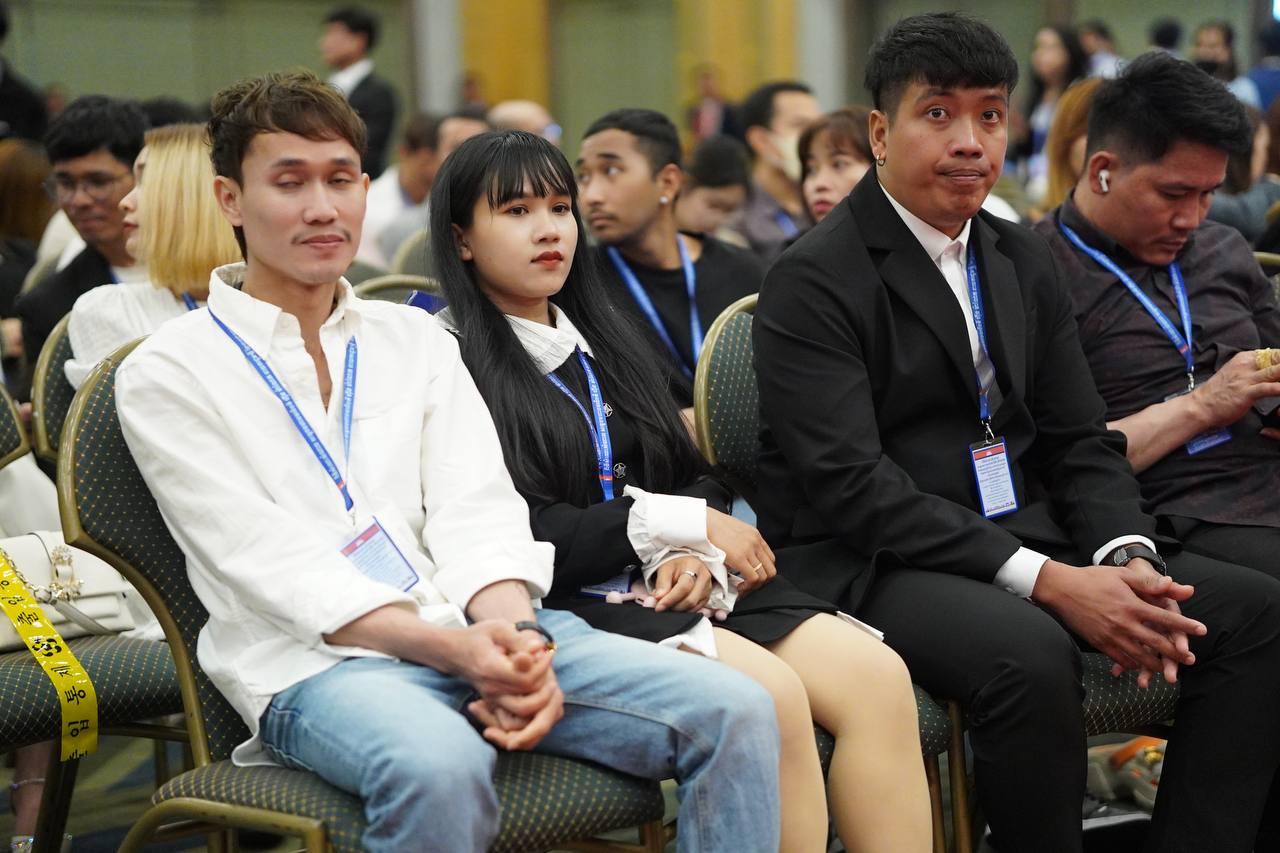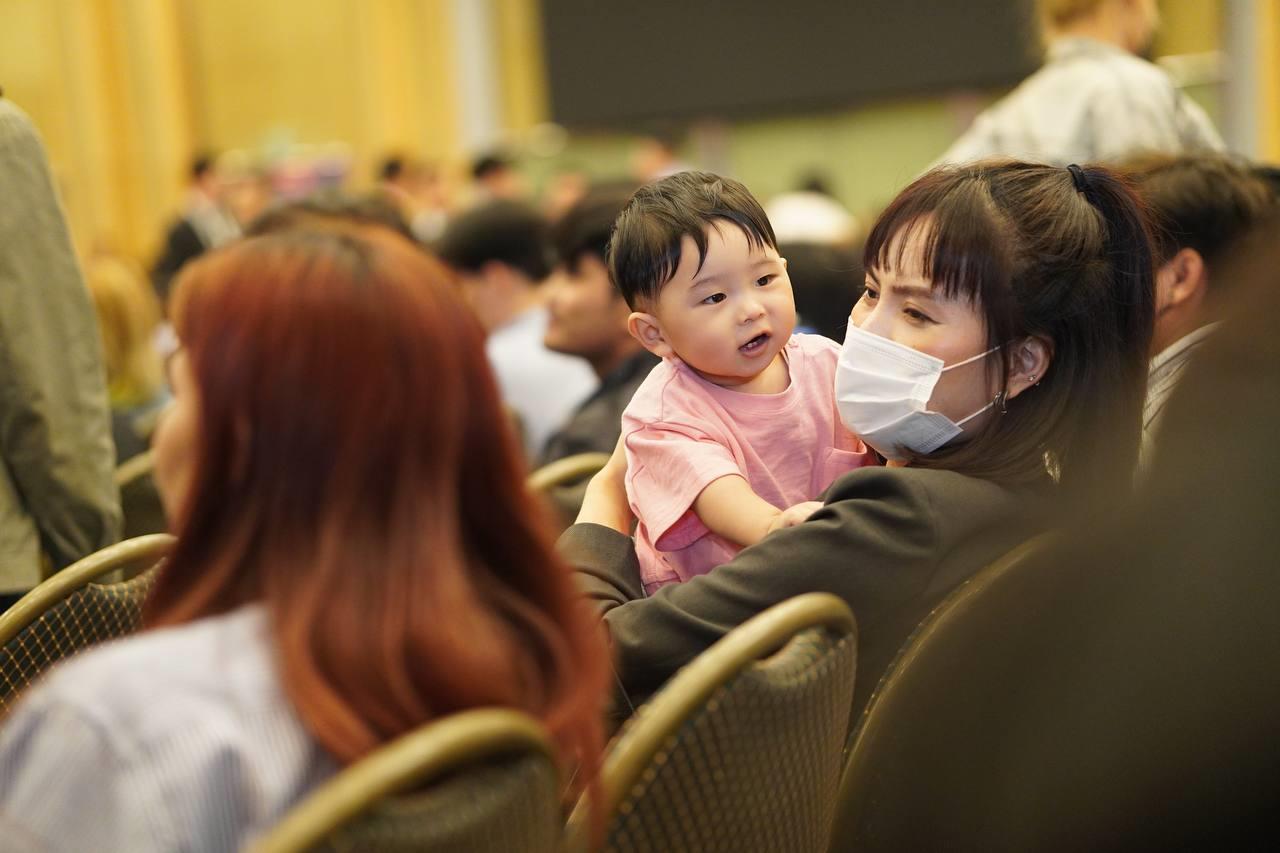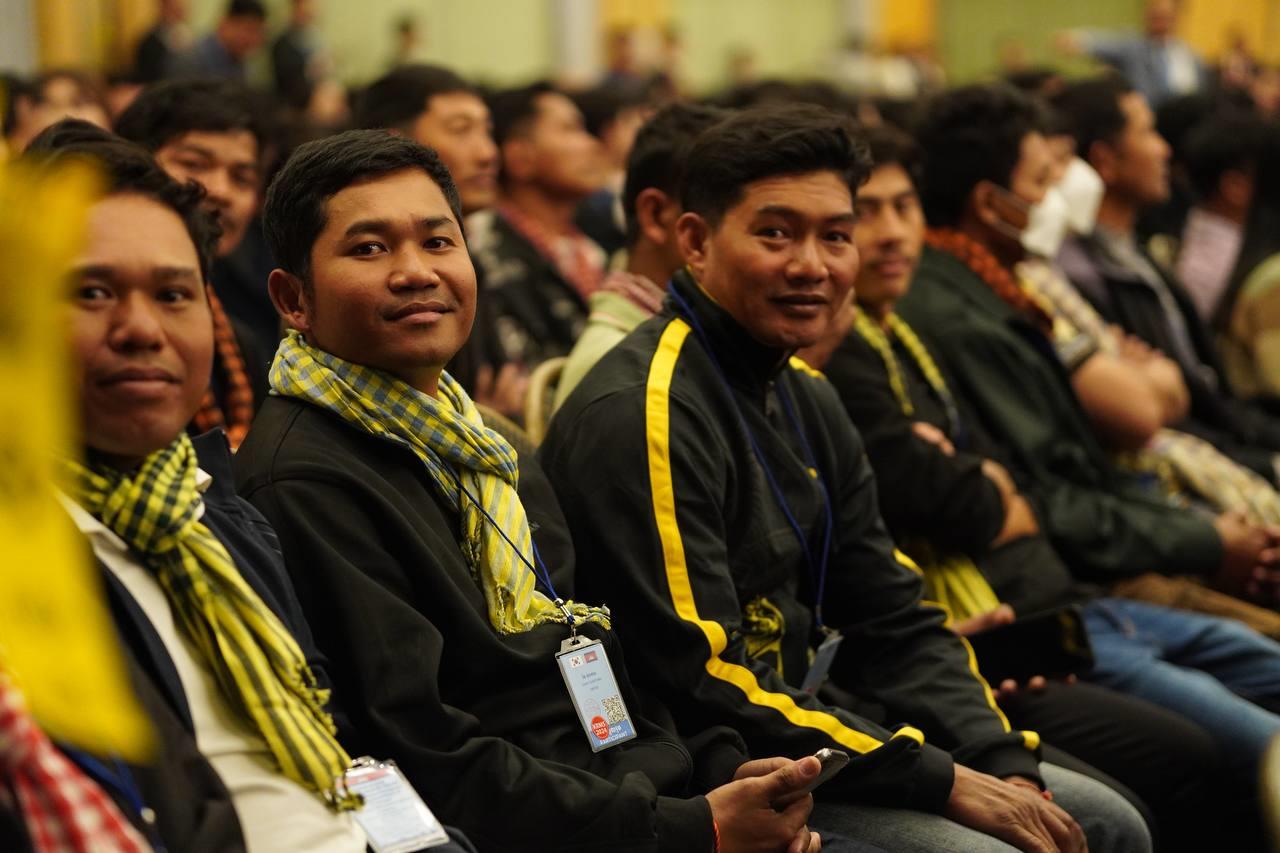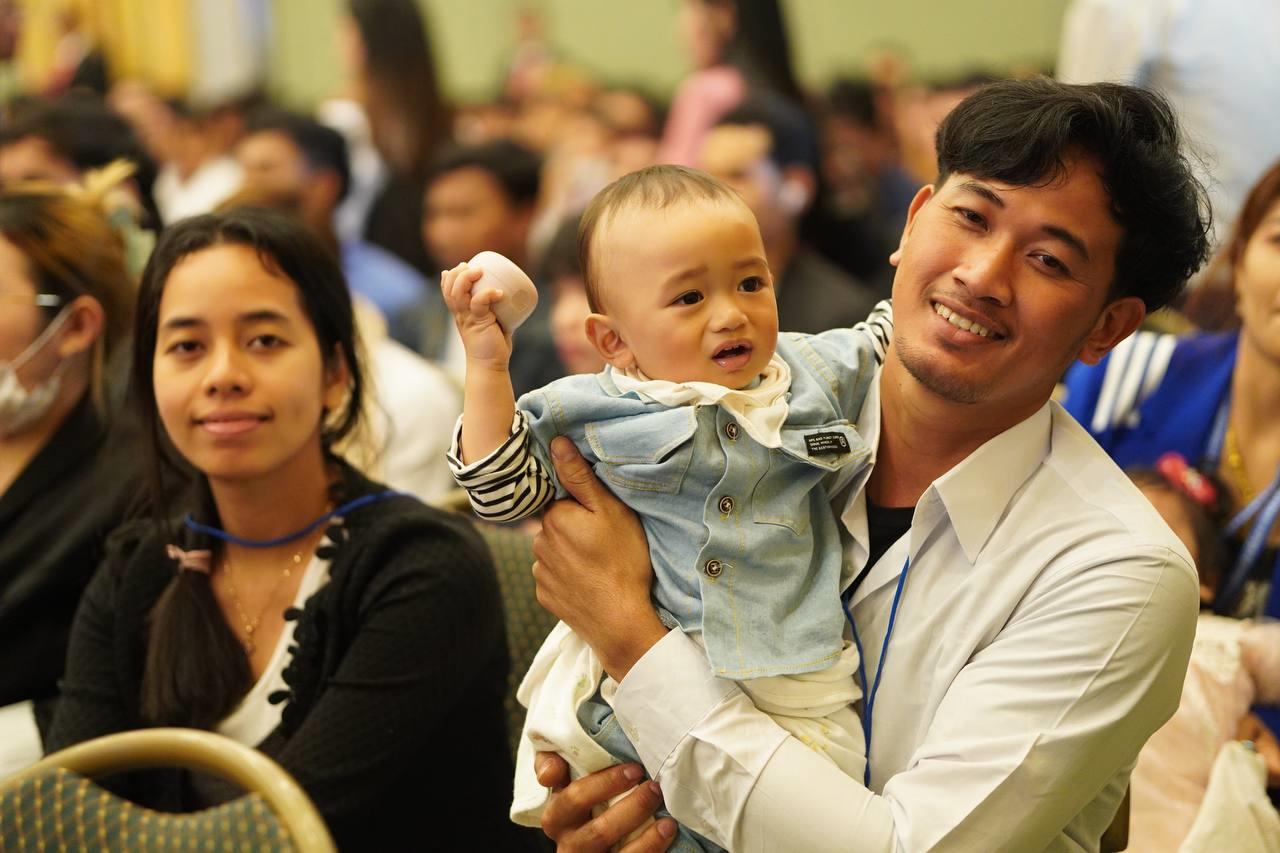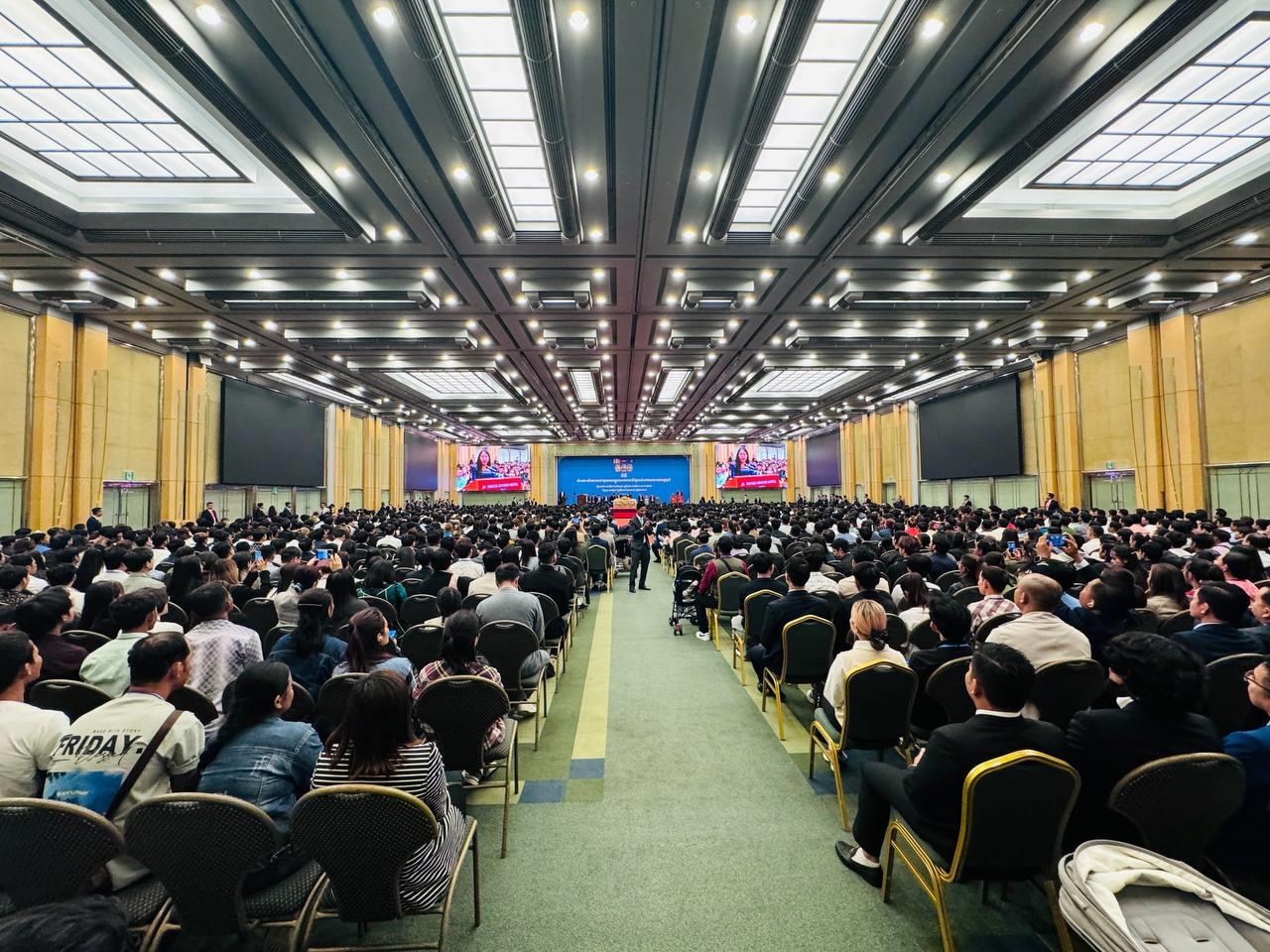Seoul (FN), May 18 – Cambodian Prime Minister Hun Manet stated that the policy of finding overseas employment for citizens is not about abandoning them. The Constitution of Cambodia clearly states that the Royal Government is required to protect all Cambodians everywhere, both domestically and internationally.
The premier spoke on Saturday (May 18) during his meeting with the Cambodian community in Seoul, the Republic of Korea.
Samdech Thipadei Hun Manet noted that the Cambodian community abroad can provide opportunities for Cambodian children born abroad. The establishment of many Cambodian communities abroad can help Khmer language and culture flourish internationally, benefiting the people of Cambodia.
Samdech Thipadei underscored, "Our policy is not closed; we are providing additional opportunities. Sending workers abroad or encouraging our people to study and live abroad does not mean the government is abandoning them. The Cambodian Constitution requires the Royal Government to protect Cambodian citizens everywhere. So, our policy of protecting Cambodians, including those in Korea, is robust."
On that occasion, Samdech Thipadei Hun Manet also reminded that in 2014, during a visit to Korea, there was only one Cambodian Deputy Minister of Labor. However, with the growth of Cambodian workers in Korea, Samdech Techo Hun Sen decided to create two sub-committees to work with associations, support centres, and Korean institutions to facilitate the work of Cambodian citizens and workers in Korea.
According to Samdech Thipadei Hun Manet, more than 45,000 Cambodians are currently working in Korea.
Prime Minister Hun Manet underlined that the main goal of the Royal Government is to create quality jobs to boost the national economy. The priority is to promote local employment, but organizing overseas work opportunities is also necessary. Creating jobs locally remains a top priority, but facilitating employment abroad provides additional options for citizens, such as in Korea.
Premier Hun Manet reiterated that only countries with closed economies prevent their people from working abroad. Sending people to work abroad is common as a mobile labour force is a global norm.
The premier added that in the era of globalisation, signing free trade agreements aims to facilitate the flow of products and human capital. Countries lacking labour can choose workers from other nations.
At the same time, Samdech Thipadei mentioned that the benefits for the sending country include improved living standards for the people through higher salaries and skills acquisition.
Samdech Thipadei further underlined that opening the door to overseas labour markets is not about exploiting workers or treating them as slaves. The Royal Government has mechanisms to support citizens working abroad.
=FRESH NEWS
